
Can People With Diabetes Drink Pickle Juice?
Curious about pickle juice and diabetes? Learn the pros, cons, and whether it’s safe to sip, plus tips for gut health, cramps, blood sugar, and more…
A Registered Dietitian and Certified Diabetes Educator at Good Measures, LLC, where she is a CDE manager for a virtual diabetes program. Campbell is the author of Staying Healthy with Diabetes: Nutrition & Meal Planning, a co-author of 16 Myths of a Diabetic Diet, and has written for publications including Diabetes Self-Management, Diabetes Spectrum, Clinical Diabetes, the Diabetes Research & Wellness Foundation’s newsletter, DiabeticConnect.com, and CDiabetes.com
Amy Campbell, MS, RD, LDN, CDCES on social media

Curious about pickle juice and diabetes? Learn the pros, cons, and whether it’s safe to sip, plus tips for gut health, cramps, blood sugar, and more…

Is coconut water safe for diabetes? Learn about its benefits, myths, nutrition, and tips for smart sipping with diabetes or other health concerns…

Learn what essential fatty acids are, their health benefits, signs of deficiency, and the best food sources to add to your diet…

Curious about mushroom coffee and diabetes? Learn the benefits, risks, and what to know before adding this trendy brew to your daily routine.

Improve your diet with simple, healthy eating tips! Learn easy swaps, smart shopping tricks, and delicious recipes for better nutrition…

Boost digestion and gut health with the best probiotic foods! Learn how yogurt, kimchi, kefir, and more can support a healthy microbiome…

Discover eight heart-healthy red foods packed with nutrients that support heart health, lower blood pressure, and help manage blood sugar levels…
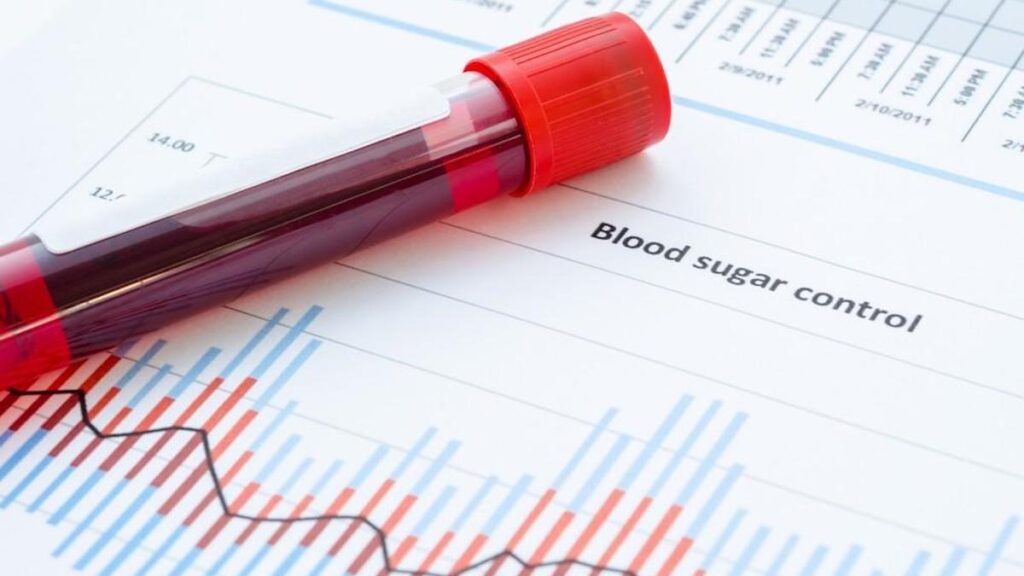
The aim of diabetes treatment is to bring blood sugar (“glucose”) as close to normal as possible. What is a normal blood sugar level? Find out here…

Dealing with holiday temptations? Discover seven mindful eating tips to help you stay present, manage stress, and enjoy the season without overindulging. Perfect for those with diabetes or weight concerns!

Get winter weight-loss tips to stay healthy during colder months. Learn how to maintain your routine, enjoy comfort foods, and stay active…

Discover the best alcoholic drinks for diabetics, including sugar-free options, low-carb beers, and safe cocktails…

This blood sugar chart shows normal blood glucose levels before and after meals and recommended A1C levels for people with and without diabetes…

The American Diabetes Association shares that two out of three people living with diabetes have high blood pressure…

Vitamin K is actually a generic name for a group of vitamins, and as you’ll see, this vitamin plays a few unique roles in the body…

Cramps of any kind are annoying, at best, but they can be downright painful. Read on to learn more about leg cramps and how you can stop them in their tracks!

As autumn approaches, those familiar deep red berries make their appearance in grocery stores across the U.S. Yes, cranberry season is here!

No one likes having bad breath, or halitosis. How is bad breath linked to diabetes? And what can you do to stop it?

There are some ways to give your metabolism a jump start. Just remember that these tips are meant to be used in conjunction with a healthy eating plan and regular physical activity…

Vitamin E has received a lot of attention over the years for its possible role in a number of health conditions. Are the claims all they’re cracked up to be?

Learn how diabetes impacts heart health in women, as well as ways to lower the risk of heart disease and stroke…

When it comes to making healthy choices, there are a lot of foods that you can eat to help you reach and stay at your weight goal…

Vitamin D goes by various names, but many people think of it as “the sunshine vitamin.” Technically, however, vitamin D is not actually a vitamin!

One of the challenges of having diabetes is figuring out what to drink that isn’t full of sugar, carbs, and calories. Here are some options to try…

You most likely know that citrus fruits are key sources of vitamin C. But there’s more to this vitamin than meets the eye…

Learn about NAFLD, a lesser-known diabetes complication, along with steps that you can take to avoid or even reverse it…

Vitamin B12 is particularly important for people with diabetes to be aware of, especially for those who take the diabetes medication metformin…

Cantaloupe does contain natural sugar, but remember that it’s the total carbohydrate content of a food that has the most impact on blood glucose levels…

There are several types of treatment for diabetic retinopathy, but the best approach is early detection and treatment, which can reduce the risk of blindness by 95%…

If you find that you often have a runny or stuffy nose, post-nasal drip, and/or constant headaches, you may have what is known as sinusitis…

If you’re always looking for ways to stay cool, you need a Jisulife Handheld Mini Fan. This powerful pocket fan is perfect for home, work, or outdoor activities…

Vitamin B9 is perhaps more commonly known as folate or folic acid. What is the difference between folate and folic acid?

Diabetes can be diagnosed with several types of tests. One of these is the oral glucose tolerance test, or OGTT, for short…

Cottage cheese may have been relegated to the back of the dairy case, but it’s having a moment! Bring cottage cheese back into your eating plan with Good Culture Low-Fat Classic Cottage Cheese…

Vitamin B7 is most commonly known as biotin, but it also goes by the name “vitamin H” (standing for “Haar und Haut,” German for “hair and skin”)…

While we’re all for big lifestyle changes, we also know that small steps can get you moving forward to better health…

Most of us have experienced bloating at one time or another. Belly bloat is a result of excess air in your digestive tract…

Besides clipping coupons and buying store brands, what else can you due to reduce your grocery bill? Read on for more ideas…
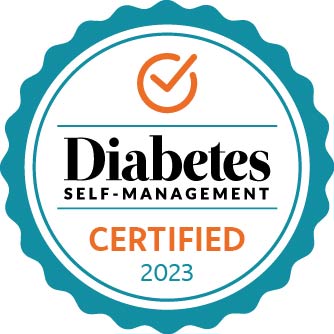
Bold Palate Beet barbecue sauces, salad dressings and marinades may be just the ticket to enliven your summertime eating…

Since spring is here (and summer is right around the corner), it’s a great time to make sure your feet are in good shape for the warm weather ahead…

Muscle loss may not be something at the top of your mind, but if you’re over the age of 30, it’s worth thinking about…
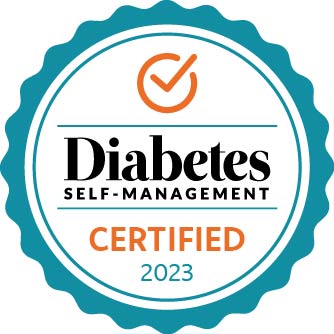
Wouldn’t it be great to ditch that annoying alarm clock that so rudely wakes you from a peaceful sleep? The Antdalis Sunrise Alarm Clock is a kinder, gentler way of waking up…

Full of protein, healthy fat, fiber, antioxidants, and more minerals than you would believe, pumpkin seeds are must-have for a healthy eating plan…

One type of nondiabetic hypoglycemia is called reactive hypoglycemia. This is hypoglycemia that happens after eating…

One way to help you veer back towards a healthier eating plan is to do some cupboard, pantry, and fridge cleaning…
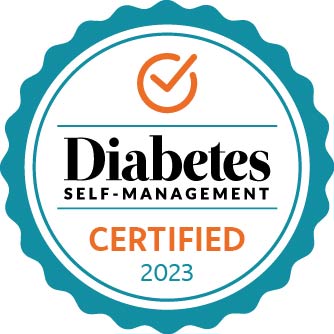
It’s good to regularly weigh yourself, but you could be getting so much more from your scale if you start using the Etekcity Smart Scale…

Whether you’re new to diabetes or a seasoned pro, monitoring your blood glucose (sugar) is one of the most important things you can do…

Vitamin B6 is also called pyridoxine. Like its other B vitamin cousins, it’s a water-soluble vitamin and is naturally found in many foods…

Here’s an overview of what the microbiome is and steps that you can take to get and keep your digestive tract healthy and happy…

You want a quick snack, but you also want to keep the carbs down. What do reach for? How about dry roasted edamame?

You may have heard that flaxseed is good for you, but in what ways? And is it helpful to eat if you have diabetes?

About 50 million Americans deal with seasonal allergies. As if this wasn’t bad enough, having seasonal allergies can also affect your diabetes…

Thinking of starting anew with healthy eating or perhaps just trying some different foods? Keep reading to learn about some current food and nutrition trends…

Feeling a bit bored with your beverages? Has water become ho-hum? Maybe it’s time to give your drink a refresh with Twinings Cold Infuse Flavoured Cold Water Enhancers…

Vitamin B5 is part of the B complex vitamin family, which, like its cousins, helps the body convert food into fuel that the body uses for energy…

If you have breath that is less than pleasant, consider adding TheraBreath Fresh Breath Oral Rinse to your daily regimen…

The tongue is essential for so many things, and how your tongue looks can be very revealing — it may even indicate a sign of a health problem…

Vitamin B3 is part of the B vitamin family. Like its other B vitamin cousins, it helps the body turn food into energy. It plays other roles in the body, as well…

For many, bagels are a guilty pleasure. Are they as bad as they’re made out to be? And do you need to avoid them if you have diabetes?
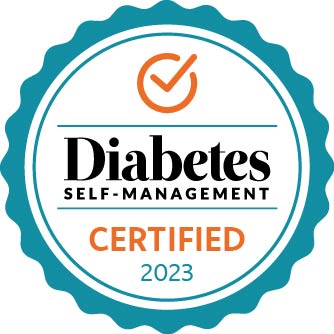
Finding a healthy cereal that won’t cause your blood sugars to soar can be challenging. Nature’s Path Organic Heritage Flakes just made your search a whole lot easier…
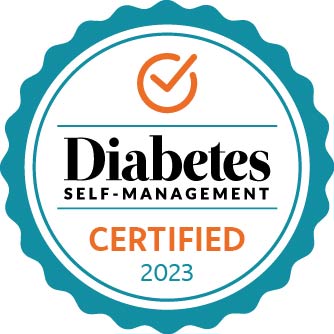
Craving chocolate and peanut butter? While you could reach for that infamous peanut butter and chocolate candy, why not reach for something equally as delicious but with more nutrition?

Do you find that you have an uncontrollable urge to move your legs when you are sitting or lying down? If so, you might have restless legs syndrome…

What is nutritional yeast? Why is it added to food? And does it have health benefits? Read on to find out!

Raynaud’s syndrome is “a condition that causes the blood vessels in the extremities to narrow, restricting blood flow…”

If hyperglycemia is something that you struggle with day in and day out, you don’t need to sit back and accept this as your fate…

Many people think of osteoporosis as a “woman’s disease,” but men can have osteoporosis, too. Learn more about men and osteoporosis…

There are proven steps that you can take to greatly lower your risk of developing type 2 diabetes. Keep on reading to find out how…

If you’re noticing that your hearing isn’t quite as sharp as it once used to be, it might be related to having diabetes. What can you do to protect your hearing?
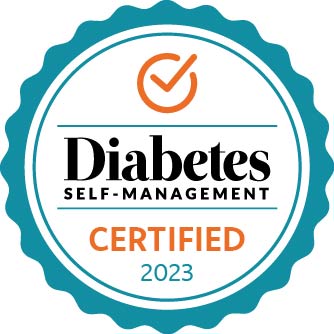
Pasta may be your passion, but you’re not crazy about the carbs, right? Maybe it’s time to give Fiber Gourmet Light Penne a try…

Is breakfast all that it’s cracked up to be? And if you’re not a fan, are you losing out on health benefits by skipping this meal? Read on to find out!
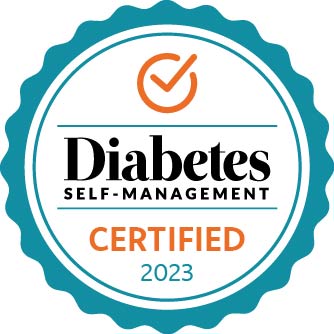
The Boyata Laptop stand is ergonomically designed to let you type, watch, and sit properly using good posture…

Also known as riboflavin, vitamin B2 plays a role in energy production for the body, but it has other jobs, too…

If you have diabetes or even prediabetes, including physical activity in your day should be at the top of your “to-do” list…

Shiro Miso is the sweetest and lightest type of miso, making it very popular and versatile. It’s perfect for making miso soup…

Like most vitamins, B vitamins have a number of different jobs in the body. Let’s take a look vitamin B1, which is part of a complex of other B vitamins…

If you’re plagued with foot problems, you know how uncomfortable it can be to walk or be active in any way. Maybe it’s time to try Copper Compression Arch Supports…

When it comes to your diabetes and your health, however, it pays to keep organized. Get tips for planning your diabetes care schedule…

Think of vitamin A and you might think about your eyes. Let’s delve into the inner workings of vitamin A, how much you need, and where it’s found…

If you have trouble sleeping because of noise or if you simply need some peace and quiet during your day, consider gifting yourself a set of Loop Quiet earplugs…

While your diabetes may not go away, there are steps that you can take to build up resilience so that you don’t get burned out or become depressed…

Sometimes people have trouble making enough digestive enzymes or can’t use them properly. If this happens, digestive enzyme supplements are needed…
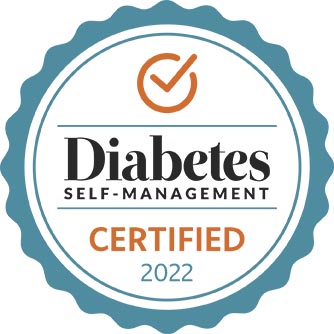
You know you need to drink more water, but, frankly, you keep forgetting! You need a reminder to help you meet your daily water goal. The Meitagie Motivational Water Bottle can help!

Diabetes is a condition that can affect the eyes. Dry eye is one eye condition that is common in people who have diabetes…

Enjoying a stint in a hot tub, for many people, is a form of relaxation. But are hot tubs safe for people with diabetes?

There is a lot of misinformation out there when it comes to understanding the differences between type 1 and type 2 diabetes. So, in this article, we aim to get a few of your burning questions answered…

Have you ever been curious about making your own yogurt but weren’t sure how to get started? Now there’s a simple way to make healthy, delicious yogurt at home…

People who have diabetes have a higher risk of depression compared with people who don’t have this condition and may also be prone to having seasonal affective disorder. Fortunately, there are things that you can do…

If you have diabetes, go ahead and enjoy the frosty winter air — but keep reading to learn what you can do to stay as healthy as possible…

Keeping your feet warm and toasty during the cold winter months is important for everyone, especially if you have diabetes or poor circulation…

There are certain factors that can put you at risk for getting dementia, and one of them is having type 2 diabetes. This may sound scary, but there’s a silver lining: You can take steps to prevent it by focusing on healthy lifestyle habits…
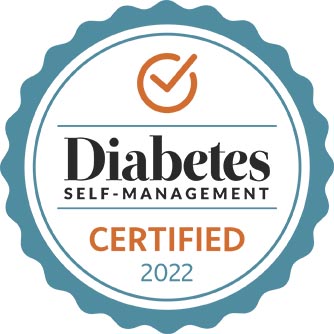
Good oral care is important for everyone, and especially for people who have diabetes. That’s why you need a Basic Concepts Tongue Scraper…

With perhaps a few exceptions, most foods have at least some redeeming qualities and can be part of a healthy eating plan. Here are some of these misunderstood foods that deserve a second look…

Learn which of the plant-based protein foods are the healthiest, and find out how to fit them into your eating plan…

You might wonder why or how a cardiologist is connected to diabetes. If you’re curious to find out, keep reading!

If you’re looking for another way to tone and strengthen your muscles, give the RitFit Pilates Ring a try…
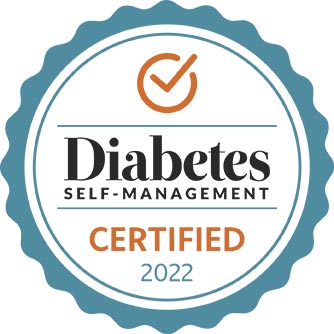
You need a lotion that is up for the moisturizing job — and that lotion is Gold Bond Diabetics’ Dry Skin Relief Body Lotion, a trusted name in skin care…

If you’ve seen your daily steps dwindle down recently, maybe now is the time to do a course correction and start getting those steps in!

Insulin stacking can happen if you take rapid-acting insulin and you are trying to lower a high blood sugar…

If you’ve been putting off getting your annual dilated eye exam, now is as good a time as any! Learn more about this exam and why it’s so important…
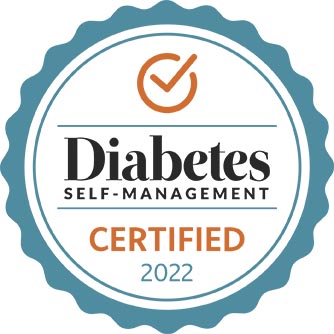
If you’re looking to give yourself a nutrition boost, reach for Bragg Nutritional Yeast. It’s a delicious way to add protein and B vitamins to your foods…

Vitiligo is a skin condition that leads to loss of pigmentation on the skin. What causes vitiligo and are people with diabetes more likely to have this condition?

If you’re feeling overwhelmed with everything it takes to successfully manage diabetes, a diabetes care and education specialist can help!

What are ultra-processed foods and how do they affect health? Learn more about the differences between processed and ultra-processed foods…

Emergency situations and disaster preparedness is something we’d rather not have to think about, but having an emergency survival kit to deal with natural disasters is essential…

According to the Office of Disease Prevention and Health Promotion (OASH), a division of the U.S. Department of Health and Human Services, “Many men need to pay more attention to their health…”

When you have diabetes, you may work with doctors who are specialists. What does a nephrologist do and when might you see one?

Choosing the right hot cereal is important so that you get the most bang for your nutrition buck without overdoing the less-than-desirable ingredients…

If your skin isn’t looking or feeling as healthy and luminous as you would like, it’s time to try Dr. Burd’s Wonder Spray Skin Rescue Facial Mist…

You may have heard of a supplement called SuperBeets. What is it meant for? Does it deliver? Is it safe? Read on to learn more…

Learn more about the effects of chemotherapy on diabetes and steps that you can take to manage diabetes during chemotherapy…
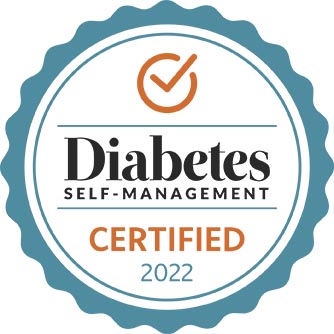
Autumn is upon us, and that means everything pumpkin spice! Skip the overpriced lattes, and treat yourself to Bigelow Pumpkin Spice Black Tea…

Advanced carb counting is a flexible approach that lets the person decide how much carb they want to consume at meals and snacks…

The ComfiLife Anti-Fatigue Floor Mat is a solution to those aches and pains that come with standing for long periods of time…

Losing belly fat can help you look and feel better, but most importantly, help you stave off some serious health issues. Read on to learn how!

What is autonomic neruopathy and how might you know if you have it? Read on to learn more…
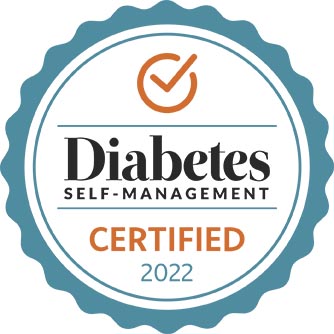
Puzzles are fun for people of all ages, and more and more research shows that doing puzzles is a great way to keep your brain in top shape as you get older…

What is LADA (latent autoimmune diabetes in adults, or type 1.5 diabetes) and how might you know if you have it?

If your eyes burn or sting or constantly feel uncomfortable, you may have a condition known as dry eye. If it’s any consolation, you’re not alone — millions of Americans are afflicted with dry eye…
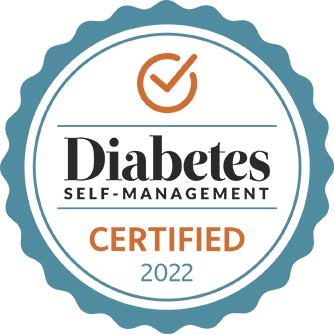
Dry eye is a common but bothersome condition that can affect people with diabetes. Get soothing relief with the Optase Moist Heat Mask…

Learn some tips on how you can protect your food “investment” so that you reap the benefits of good nutrition, avoid foodborne illnesses, and save money at the same time…

Red yeast rice is a dietary supplement that some people take in place of a statin to lower their cholesterol. What is red yeast rice? And is it safe to take?
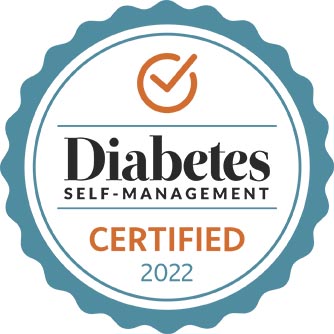
If you think allergies only strike in the spring, think again! To soothe a dry, irritated nose and to open up those stuffy nasal passages, reach for Maty’s Simply Breathe Nasal Ointment…

While there isn’t a proven way to prevent prostate cancer, there are ways to reduce your risk by adopting a healthy way of eating, as well as making some lifestyle changes…

Lowering your A1C often takes a multi-pronged effort, and typically involves a combination of medication and lifestyle factors…

When it comes to eating with diabetes, there are free foods that you can eat that have little to no effect on your blood sugars…

There is more to the A1C test than meets the eye. Learn about A1C test insurance coverage, estimated A1C, and more…

Using the FITT principle can help you choose and customize a workout plan that meets your needs and help you reach your fitness goals…

Living with diabetes and wondering how the A1C test is done and what the results means? Get our expert answers here…

You might find it hard to believe that sauerkraut has much to offer in the way of nutrition and health. Surprisingly, it does! Here’s the lowdown…

As part of “knowing your numbers,” make sure you know what your A1C level is, what it means, and what to do if it’s not at target…

While snacking can be a great way to boost your nutrition, it can also backfire. Can and should people who have diabetes eat snacks?

If you have either hyperthyroidism or hypothyroidism, medication may likely be part of your treatment plan. While good nutrition won’t cure your thyroid condition, it can help you manage your symptoms and feel your best. Let’s take a closer look…

Chronic inflammation is linked to many diseases, so taking steps to avoid it is important. What are steps for reducing inflammation in the body?

If you’ve heard about berberine, you might know that it’s a supplement that is sometimes touted as a way to help manage type 2 diabetes. But does it really work?

If you’ve been diligently walking, hiking, or jogging and you’re waking up with a sharp pain in your heel, you might have plantar fasciitis…

Before you grab your towel and head out, make sure you’re prepared to deal with any potential challenges that can ruin your fun in the sun…

If the summer sun has you melting like a popsicle, cool off with the fun and stylish JISULIFE F8 Pocket Bear Fan…
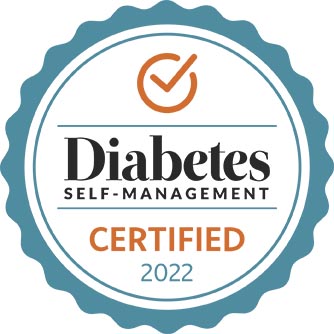
If you are allergic to milk, lactose intolerant, and/or choose to follow a vegan eating pattern, you may think that enjoying yogurt is simply a pipe dream. Well, think again!

Apple cider vinegar is often touted as a supplement to promote health and improve diabetes control. Can ACV live up to the hype?

Throwing out food equates to throwing away good money. Keep your produce fresh up to two times longer with Genteen Produce Containers…

People with diabetes tend to “feel the heat” more so than people who don’t have diabetes. Learn about ways to stay cool this summer…

If you like anything cheese, you’re going to love King Arthur Baking Company Better Cheddar Cheese Powder…

Diabetes affects women differently than men. Learn more about this, as well as steps that you can take to improve your overall health…

While the general consensus is that people with diabetes can eat anything (it’s matter of how much, when, and maybe, what you pair it with), there’s still some confusion around certain foods. Dates happen to be one of these foods…

If you hate to waste even a drop of your favorite oil, the Oalushf Glass Oil Dispenser bottle is a must-have!

Type 1 diabetes is often diagnosed suddenly and quickly, based on certain signs and symptoms. Learn more about diagnosing type 1 diabetes and what the various tests mean…

Because eggs are such a nutritious food, they deserve to be praised. Chances are you enjoy them from time to time. Let’s take a look at some of the benefits that eggs have to offer…

How do you make the Mediterranean diet work for you if you have diabetes? And is this diet really the best one for you?

If spinach and broccoli are not on your top ten list of vegetables, is there another way to ensure that you get important nutrients in your diet? Here’s where supergreens come in…
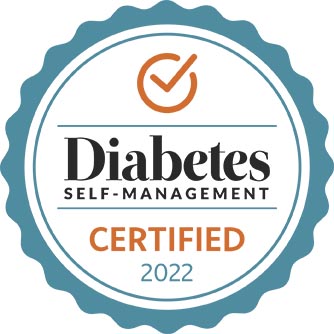
Do you find it impossible to apply lotion, sunscreen, or medicated ointment to your back when nobody is around to help? If so, try the Vive Lotion Applicator…

Turmeric is often recommended as a dietary supplement, as well as added to almost everything, ranging from smoothies to tea to milk, and more. Is turmeric something you should take as a supplement? Will it help your diabetes?

While there isn’t a cure for diabetes yet, don’t let feelings of fear discourage you — there is a lot that you can do to get and stay as healthy as possible…

Bacon is salt-cured meat that is cut from the belly or the back of the pig. What is it about bacon that is so alluring? And is it OK to eat?
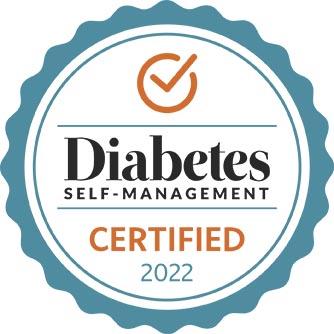
If you’re wondering how to easily carry all of your diabetes supplies, coordinate everything with the Myabetic Banting Diabetes Supply Case…

Having diabetes can make it hard to regulate your body temperature. Learn more about why this can happen, why you may sweat more at certain times, and what you can do to help you sweat more “normally…”

Kombucha is a trendy beverage that has hit not only the shelves of health food stores, but local supermarkets, as well. What is this drink, and are the health claims for real? How might it impact your diabetes?
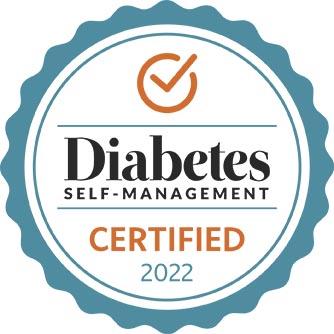
When it comes to socks, you want comfort, quality, wearability, and affordability. That’s not too much to ask for when you purchase socks from Comfort … Read More “Product Review: Comfort Fresh Diabetic Socks”

Eating well, being active, destressing, and sleeping better can help you take good care of yourself and make it easier to manage your diabetes at the same time. So, if you’re looking for some ways to get back on track, keep reading!

The term “insulin resistance” has been trending in the media for a while. If you have questions about insulin resistance, keep reading to get answers…
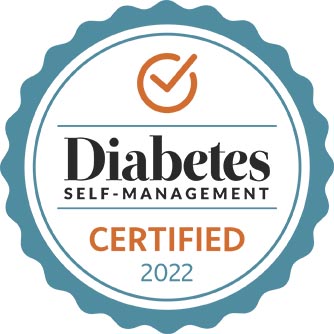
If you love sauerkraut, it’s best to go with the fresh variety so that you can reap the benefits of all those healthy “good” bacteria, called probiotics…

Vegetarian diets have become increasingly popular. Let’s debunk a few of the most common myths surrounding plant-based eating…

Because hyperglycemia is potentially dangerous and can make you feel unwell, it’s important to take steps to lower your blood sugar. Here’s how…

Most of us don’t realize how much food we throw away every day. Get tips to reduce food waste and make the most of your grocery budget…
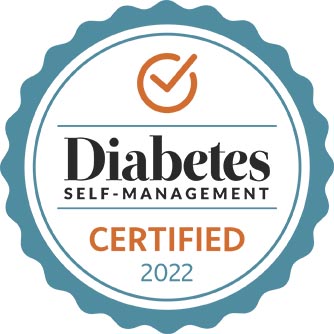
What better way to keep track of your diabetes supplies and important documents than the Maxtop Crossbody Fanny Pack!

Are you struggling to pay your bills and finding yourself with less money to buy food? Learn about resources for affording food…

If you’re struggling to find an activity that you enjoy doing, if you need a gentler way to move more, or if your goal is to help better manage the daily stresses of life, consider trying tai chi…

Cookout and barbecue season is here! But before you clean your grill from last season’s grime, think twice and put away the grill brush…

The dreaded “pink eye”! Is diabetes a possible culprit? In fact, there’s a good chance that having diabetes might just be the culprit…

If you have or have ever had pain in your jaw, difficulty chewing, or locking of your jaw, you might have what is called a temporomandibular joint (TMJ) disorder…
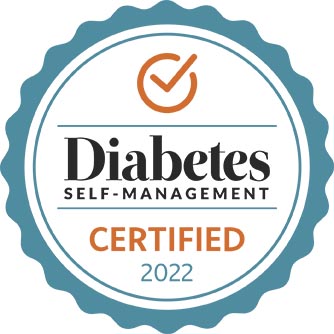
If you’re tired of all of your cracked plastic containers with missing lids taking up room in your cupboards, maybe it’s time to clean out and restock with healthier, more durable glass containers…

People with diabetes are often advised to cut back on sugar or even cut it out altogether. Fortunately, you don’t have to stop eating sugar…

Eating healthy foods doesn’t have to be hard. You don’t have to overhaul your diet or stop eating foods that you like…

Losing weight involves making changes to your eating plan (including controlling food portions), as well as fitting in regular physical activity…

Staring at a computer all day or night can lead to eye strain and fatigue, as well as headaches. What to do? Get yourself a pair of Blue Cut Blue Light Blocking Glasses!

Try your hand at answering these questions and see how much you know about the different types of diabetes medications!

If you have diabetes, you might be curious or downright confused about certain vegetables. A good example of this is carrots…

Many people regularly donate blood, while others donate during times of a local or national need. But can people with diabetes donate blood?
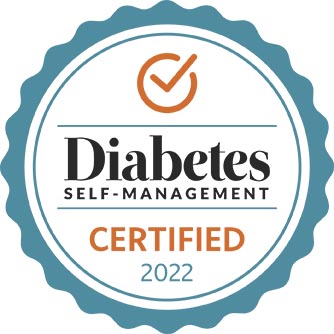
In a world of energy and snack bars, you might be wondering if there is room for more. Well, there’s room for JiMMY! Protein Bars…

You might have seen or tried fresh or ground ginger. What exactly is ginger? Is it good for you? And does it affect your diabetes?
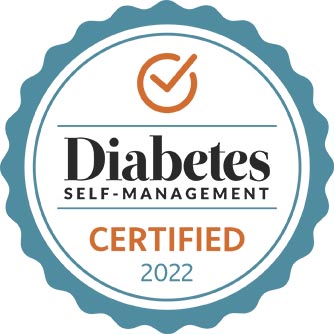
If you’re trying to eat more healthfully, hot dogs might not exactly fit with your health goals. Rest assured — you can still join in on the fun with Lightlife Smart Dogs…

Dying of a broken heart is more than just a line used in a novel or movie — it’s an actual medical syndrome, and some people really CAN die of a broken heart…

People with diabetes are more prone to having high cholesterol. Luckily, there are things that you can do to lower your LDL cholesterol and keep it at a safe level…

If you’ve heard the term “biosimilar” in relation to insulin, you might be wondering what this means. And is a biosimilar drug the same as a “biologic” drug? What are “small molecule drugs”? You don’t have to be pharmacist to find out!
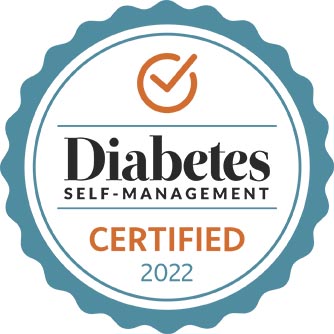
Chafing thighs, chafing arms, chafing feet … none of that is comfortable, and it only worsens when you’re hot and sweaty. Stop chafing in its tracks with Body Glide Body Anti-Chafe Balm…

Pain, nausea, vomiting, and maybe even a fever or chills. While these symptoms can indicate many issues, they may point to gallstones. Learn more about gallstones and how they might be linked to diabetes…

If you take certain medicines, you might be curious about the warning on the label not to use it if you or anyone in your family has ever had medullary thyroid cancer (MTC)…

High blood pressure, also called hypertension, affects almost half of adults in the U.S. Learn about some blood pressure myths and facts…

There are plenty of nut butters — seed butters, too — to choose from. Get seed and nut butter nutrition facts and top picks here…
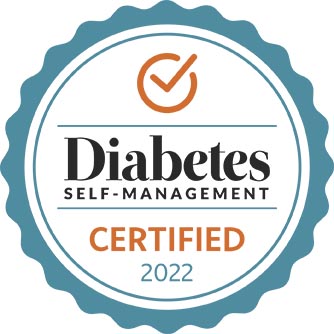
If you don’t have an air purifier, maybe it’s time to get one! Allergy season is upon us, which means pollen and mold abound…

Treatments are available for high blood pressure, but if you’re noticing that, despite taking steps to treat it, your blood pressure is still above your target, you might have what is called resistant hypertension…

Are there safe, easy, and effective ways to ward off stress? Yes! Keep an open mind and try different ways to find what works for you. Here’s how…

Sjogren’s syndrome, which affects between one and four million Americans, is an autoimmune condition that can accompany other immune disorders, including lupus and rheumatoid arthritis…
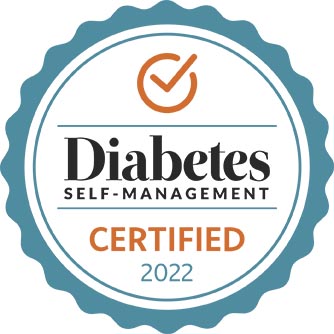
Chamomile tea is a go-to for many people who have trouble falling or staying asleep. But chamomile tea has benefits that go beyond sleep…

According to the American Medical Association, anywhere from 15% to 80% of people might have long COVID after recovering from the infection…

There’s no better time than now to focus on keeping your heart – and blood vessels – as healthy as possible! Learn about some signs of an unhealthy heart…

There’s a type of carbohydrate that pops up frequently on social media and on some food products called “net carbs.” What does “net carbs” mean?
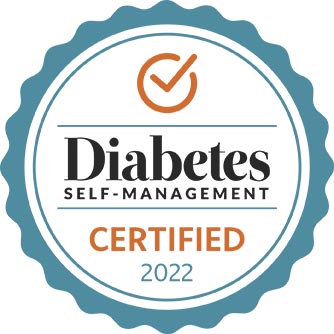
Who has time to run to the outdoor composter every time you have food scraps? With the Granrosi Farmhouse Kitchen Compost Bin, your problem is solved!

A new class of medication is now available to help with weight loss. And it just so happens that this class of medication is also used to treat diabetes…

When it comes to liquid fats, or oils, there’s a dizzying array to choose from. Some are best suited for cooking, while others should mostly be used for salad dressings, garnishing, or dipping bread…

Interstitial cystitis (IC) is a chronic condition that causes painful urinary symptoms. What is IC and could having diabetes be a culprit?
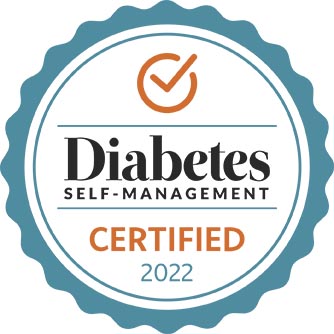
If your goal is to eat more vegetables, you’ll want easy ways to fit them into your daily menus. That’s why you need the Fullstar Spiralizer…

Snacks can be part of any healthy eating plan but the key is to choose nutrient-packed foods rather than empty-calories foods such as chips, cookies, ice cream, etc…

You may have come across terms that are somewhat similar-sounding: leptin and lectins. Are they the same? Or completely different? Read on if you’re curious to find out!

Melatonin is a supplement that has become increasingly popular as an over-the-counter sleep aid. There are other reasons why people take melatonin, too. Is this a supplement that you can take if you have diabetes?
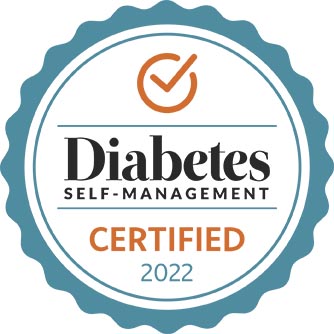
Ready to get out and do some walking? Walking is one of the best physical activities around, but why not give yourself a total body workout with trekking poles?

Everyone has a liver but not everyone understands exactly what it does or why it’s so important. Surprisingly, the liver has numerous roles (upwards of … Read More “Understanding Liver Function Tests”

Brittle diabetes is a term that some health experts use to describe diabetes that is especially hard to manage. Could you have brittle diabetes? Read on to learn more…
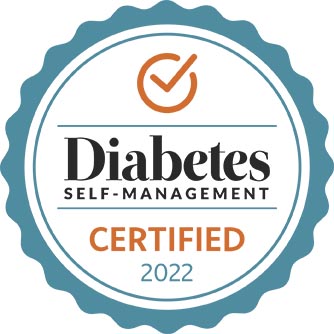
Wooden cutting boards are great, but they’re sometimes awkward to clean and can be heavy to move. Maybe it’s time to rethink your cutting board…

Eczema is a common skin condition that affects millions of people in the U.S. How do you know if you might have eczema, and does having diabetes put you at risk?

Polycystic ovary syndrome (PCOS) is a condition that affects women and is one of the most common causes of female infertility…
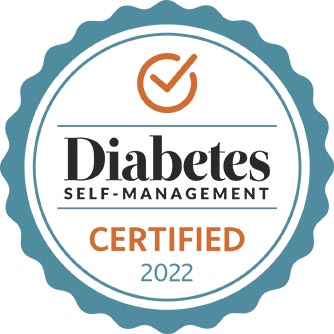
Not eating many fruits or vegetables? Fret no more! Kewl Kutter Smart Cutter kitchen scissors is a fast and easy tool to help you tart eating healthier…

Snoring can be a sign of an underlying medical condition or sleep disorder, especially if you have diabetes…

Is pizza off limits if you have diabetes? And if not, how can you enjoy a slice (or two) without sending blood sugars through the roof?

If you’re not quite sure what shingles is, or why it’s important to protect yourself against this painful condition, read on!
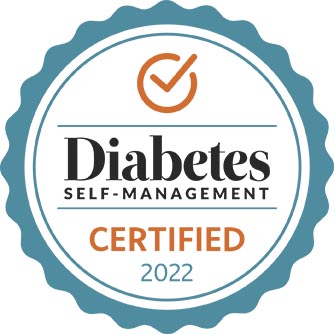
The downside of soup is sodium. What can you do? Try RC Fine Foods Healthy Foundations Low Sodium Gluten-free Chicken Flavored Base…

Can people with diabetes drink juice? And are there some juices that are better than others? Let’s take a look…

Pancreatitis is a condition in which your pancreas becomes inflamed. Both forms are serious and can lead to complications if not treated…
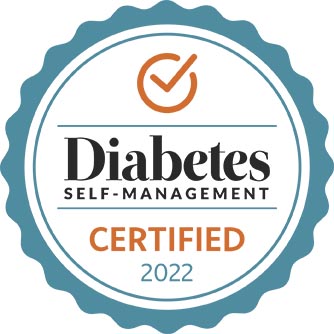
Feeling cooped up and under pressure? You need stress relief and you need it now. But how? Try the Hofason Scalp Massager…

If your food choices have become a bit boring, maybe it’s time to branch out and find some alternatives to your basic healthy foods…

You may have come across bottles of a beverage called kefir recently. What exactly is kefir and is it something that you should try?

Olive oil is a popular oil that’s frequently touted as supporting heart health. But is it as good as health experts say it is?
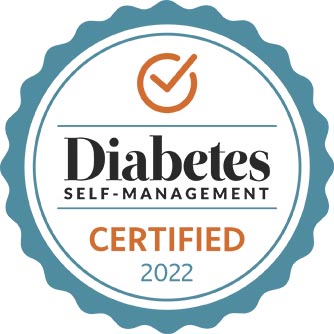
YumV’s Zero Diabetic Multivitamin Sugar-Free Gummies are an easy (and tasty) way to meet your vitamin and mineral needs…

The Go Red for Women activities supports research on heart health in women which, in turn helps create tools and guidelines for health care providers to prevent and treat heart disease in women…
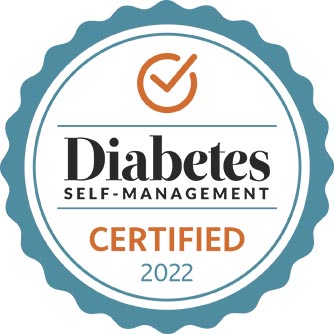
If eating more plant-based foods is your goal, you might think cheese is off limits. Luckily, it’s not with Daiya Dairy-free Cheddar Style Slices!

You’ve likely heard about Parkinson’s disease, but maybe you’re wondering exactly what it is, who it affects, and if it impacts people with diabetes…

Finding an extra-virgin olive oil (EVOO) that tastes great without breaking the bank can be a a challenge — unless you try Colavita EVOO…

You CAN succeed at making physical activity a regular part of your life. One way to do this is to address common misbeliefs and myths that act as barriers to a more active lifestyle…

Chosen wisely, soup is a great way to sneak in some vegetables, whole grains and even an ounce or two of protein. Learn about soup nutrition and get some top picks…
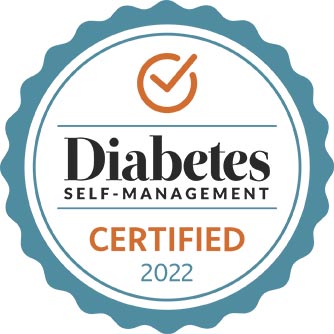
Bored with plain water? Looking for an alternative to artificially sweetened beverages? Check out True Grapefruit Water Enhancer!

More and more people in the United States aren’t getting enough iron in their diets. Are you at risk of iron deficiency anemia?
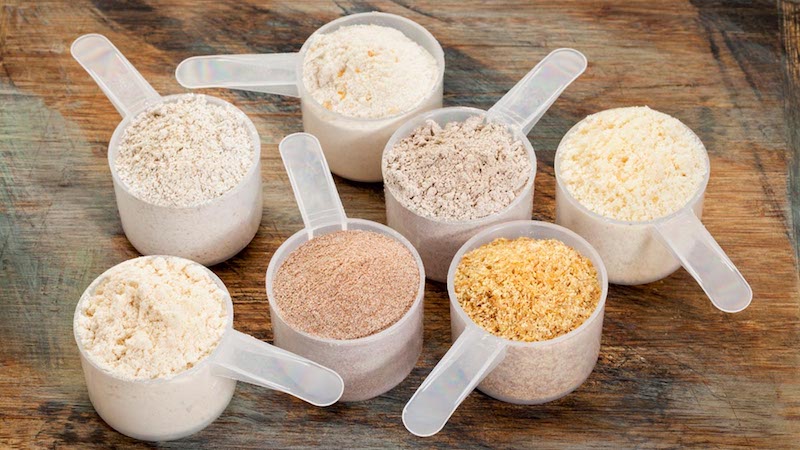
Whether you have celiac or you’re looking to give your baked goods a nutritional boost, know that you have a lot of flour options to choose from…

What is prediabetes? How is it diagnosed? And what can you do about it if you have it? Get answers to your questions…
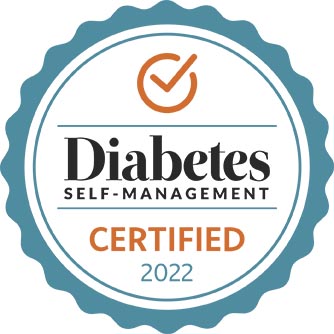
You’ve heard seaweed is good for you, but you might be wondering how to actually eat it. How about a seaweed snack to help you get started?

What’s often overlooked is the role of nutrition in managing arthritis. If you have arthritis, how might a healthy diet help you?
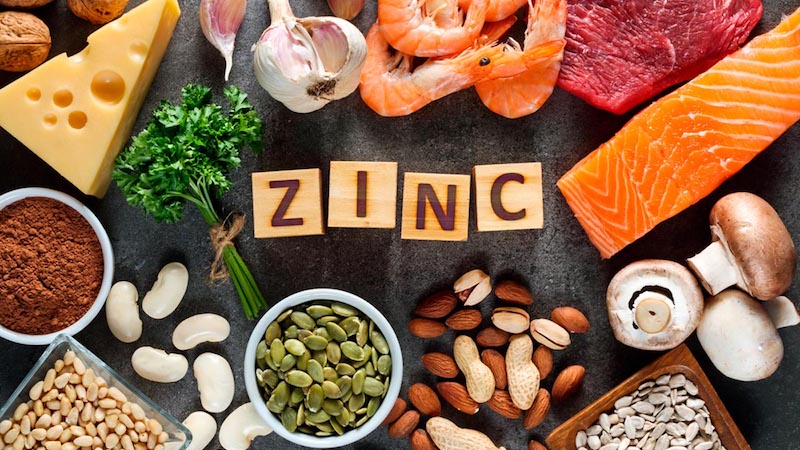
While zinc deficiencies aren’t that common, people with certain health conditions need to make sure they’re getting enough…

Here’s what we know so far about COVID-19 and diabetes. Of course, information is constantly changing, and that means that what we know right now could change in the near future…

If you enjoy cooking and baking but are having trouble finding a flour to fit your dietary needs, consider choosing Blue Diamond Almond Flour…

Food prices are higher than they’ve been since 1990. Here are some tips that can help you save money on groceries…

Gestational diabetes occurs in pregnant women who don’t already have diabetes. Read on for eating tips to help you manage this condition…

Seasonal affective disorder, or SAD, for short, affects about 5% of adults in the U.S. What exactly is SAD, and how might it impact people who have diabetes?
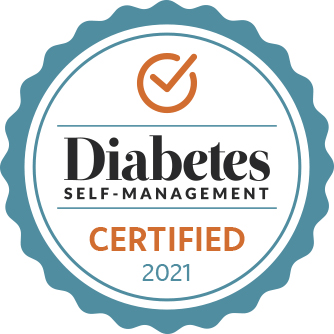
If you’re feeling down, anxious, or worried about events in your life, or if you’re simply curious about being thankful for things in your life, you might consider keeping a gratitude journal…

Practicing self-care may seem hard, but it’s important during this holiday time, and every time of the year, too. Try these tips to help you navigate this the season so that you can enjoy gatherings while still staying on track with your diabetes…
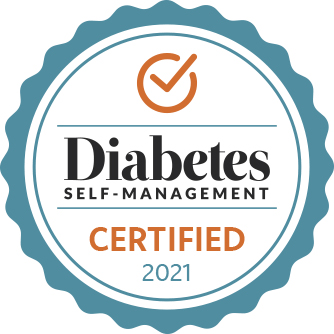
Finding a healthy, decent-tasting snack that won’t blow your carb budget isn’t always so easy. Then again, maybe you haven’t tried Oloves Natural Whole Pitted Olives…

it’s easy to increase and maintain flexibility — it just takes a little bit of time and dedication, but the payoff is worth it. Learn more about how you can become flexible…
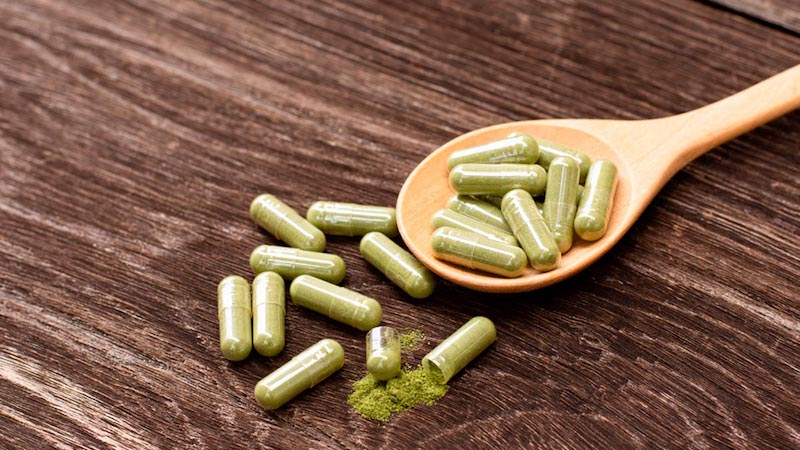
One supplement that has entered the diabetes scene is Altai Balance. What is this supplement, and is it something that you should try?

If your self-care routine or practices have fallen by the wayside this year, why not start focusing now on getting back on track?
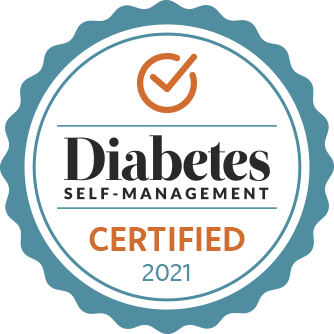
Looking for a unique holiday gift for your favorite chef or maybe even yourself? Consider Herb Scissors!
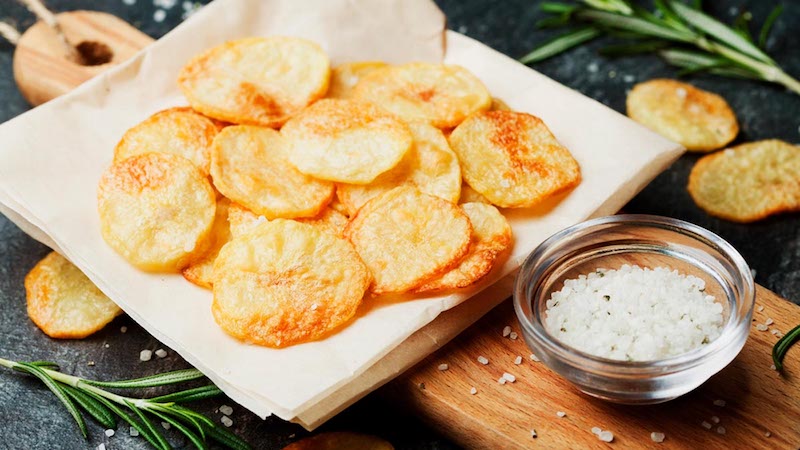
There’s something irresistible and alluring about potato chips. How “bad” are they, and can you eat them if you have diabetes?

There are steps that you can take to help you feel better and weather that cold so that you can focus on your diabetes — and getting better at the same time…

The MIND diet, which stands for Mediterranean-DASH Intervention for Neurodegenerative Delay, promotes foods that improve brain health and lower the risk of mental decline…
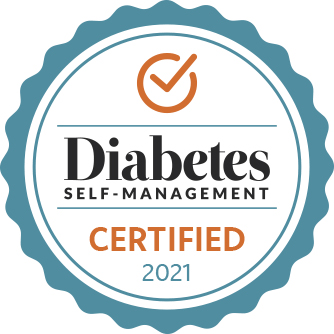
Looking for a way to spruce up your smoothies, oatmeal, or yogurt? Lil Bucks Sprouted Buckwheat Crunch is the solution to your dilemma…

How do you know if your child or teen might have type 1 or type 2 diabetes? What are the signs and symptoms to watch out for? Read on to learn more!
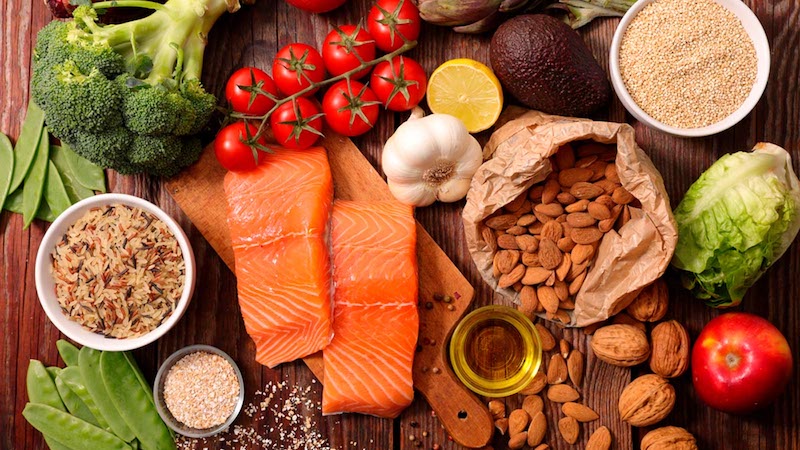
A big part of aiming to prevent diabetes is focusing on healthy habits – especially around eating and staying active…

If you have diabetes, what is the best sweetener to use in your baking? And can you bake with sugar if you have diabetes? Read on to find out!

How do you know if your food has gone bad? If you’re judging the safety of a food by the food expiration date printed on the can, bottle, or package, you might be throwing away perfectly good food. Here’s how to make sense of these dates…

There are proven interventions that can help to prevent diabetes. One of these is physical activity. And being physically active is easier than you think!
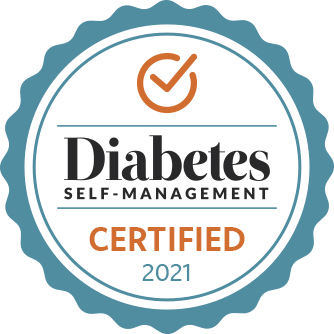
If you need to avoid gluten, stuffing is off the list. Or is it? Luckily, Aleia’s Gluten-Free Savory Stuffing is here to save the day!

Electrolytes probably sound at least vaguely familiar to you. Are they something that you need to think about? Read on to learn more about electrolytes…
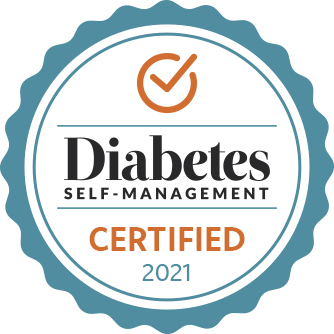
If you’re looking for a cracker that’s whole grain, gluten-free, vegan, and not off the charts when it comes to carbs, reach for Mary’s Gone Crackers Original Crackers…

Digestive woes are often the price we pay for decking the halls during the most wonderful time of year. Get your tummy back on track and in top shape for the new year. Here’s how!

For many people, ringing in the ears is an ongoing occurrence and may be due to tinnitus. What is tinnitus and how is it linked to having diabetes?

Have you been wondering what a gluten-free diet is or if it’s something that you should try? Learn myths and facts…

There are a variety of products that can help you improve your health in a number of ways. This roundup can provide some inspiration…
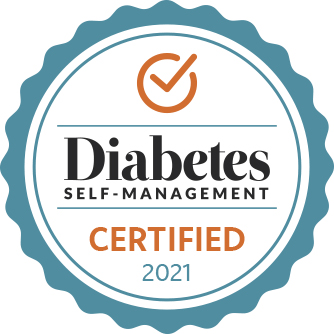
If you’re a fan of potato chips, you know how hard it is to resist them! But you probably also know that they’re not exactly the healthiest snack choice. Here’s another option: Popchips Sea Salt Potato Chips!

Diabetes can put you at risk for having oral health issues. Here are four ways to make sure your teeth and gums stay healthy and happy!

Learn about solutions for adhesive issues and skin problems so that you can comfortably use and benefit from wearable diabetes devices…

There are different types of hepatitis; one type, hepatitis C, is linked with diabetes. Read on to learn more about this liver condition…
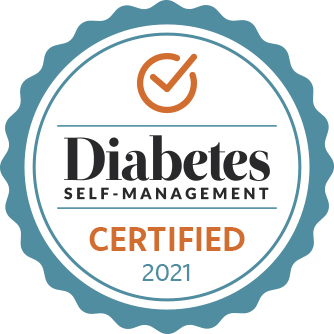
If you haven’t tried matcha but have been curious about all the matcha madness out there, it’s time to give it a go!

If you’re a tea lover, chances are you’re familiar with matcha. Not quite sure what matcha is all about? Read on to learn more about this popular beverage that has taken the tea world by storm…
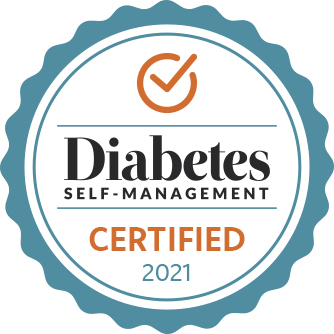
If you’ve tried sprays, mouth rinses, or lozenges to help treat your dry mouth without much success, maybe it’s time to try OraCoat Dry Mouth Stick-On Melts for Moisturizing…

There’s a type of insulin that you might not be as familiar with, called concentrated insulin. What is concentrated insulin, and is it something that might be right for you?

Many people don’t realize just how important emotional well-being is for overall health. Not paying attention to your emotional well-being can lead to some serious health problems…
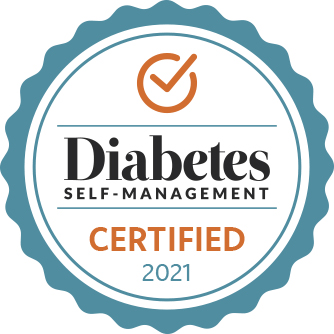
If you like the taste of ginger, you’ll love Buddha Teas Ginger Root Tea. Besides being delicious, ginger root is known for its many health benefits…

What exactly is bone broth, and does it live up to its health claims? Read on to find out!

If you have diabetes, you have a higher risk of getting foot sores, or foot ulcers, as they’re often called…
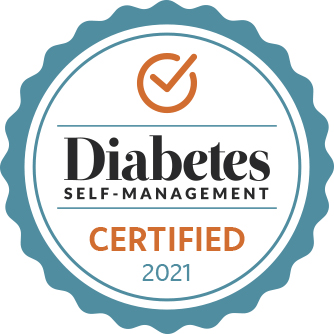
In the market for a new pair of sneakers, but worried about having to bend down to tie laces? Worry no longer — Kizik is here!

Bloating is when your stomach (belly) is full, or distended, and tight. Learn about bloating causes, prevention, and treatment…
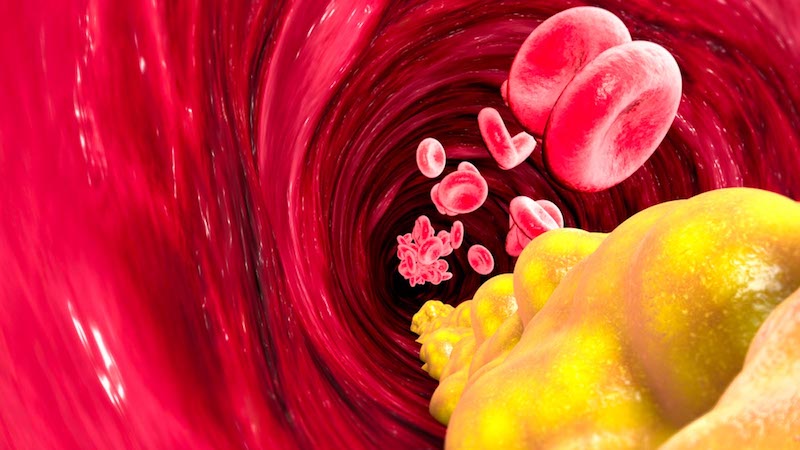
When it comes to cholesterol, there’s a lot to know — and making sense of cholesterol can be tricky. Let’s get your cholesterol questions answered…

Time to get your flu shot! People who have type 1, type 2, or gestational diabetes are strongly encouraged to get an annual flu vaccine (shot)…
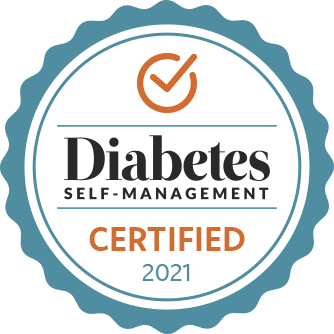
If you suffer from dandruff, thinning hair, or hair loss, you need a scalp massage brush…

Aspirin is a versatile medicine that, these days, is often taken for reasons other than a headache. Is aspirin safe to take? And should you take it?

If you have trouble falling asleep or staying asleep, or you find yourself waking up too early and not able to get back to sleep, you may have insomnia…

It’s that magical time of year — the time when suddenly everything is pumpkin flavored! But what about plain old pumpkin? Is it good for you? And if so, how do you fit it into your eating plan?
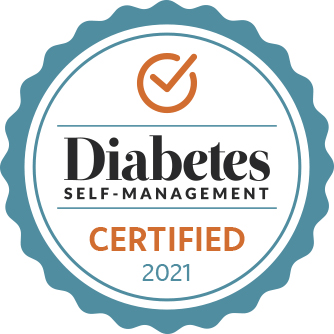
Can’t get enough of pumpkin? Yearning for a healthier alternative to pumpkin pie? If so, this snack bar has your name on it!

You may not give much thought to your lips unless a problem arises, such as a cut or cracking. Our lips do serve a purpose, so it’s important to give them some TLC!

Maybe it’s time to think about and approach exercise in a different way. Let’s make physical activity more appealing and even something to look forward to doing!
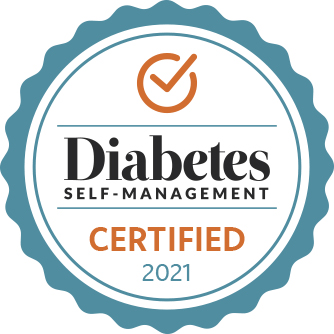
You can beat acne by giving your skin a fighting chance, thanks to CeraVe Acene Control Cleanser, a trusted name in skincare…

According to the CDC (Centers for Disease Control and Prevention), “Not counting some kinds of skin cancer, colorectal cancer is the third most common cancer in men and women…”

The terms “cure,” “reversal,” and “remission,” are frequently used interchangeably when it comes to type 2 diabetes. Is remission of this condition possible?

Your teenage years may be behind you, but lo and behold — you now have acne! Why is this happening? Does it have anything to do with diabetes? And most importantly, how do you get rid of it?

With the cost of food skyrocketing, you need to protect your investment when you go shopping! Insulated grocery bags help keep food at a safe temperature until you get home…

Walnuts often gets less attention than other types of nut, but it’s time to give walnuts a second look and think about incorporating them into your diet…
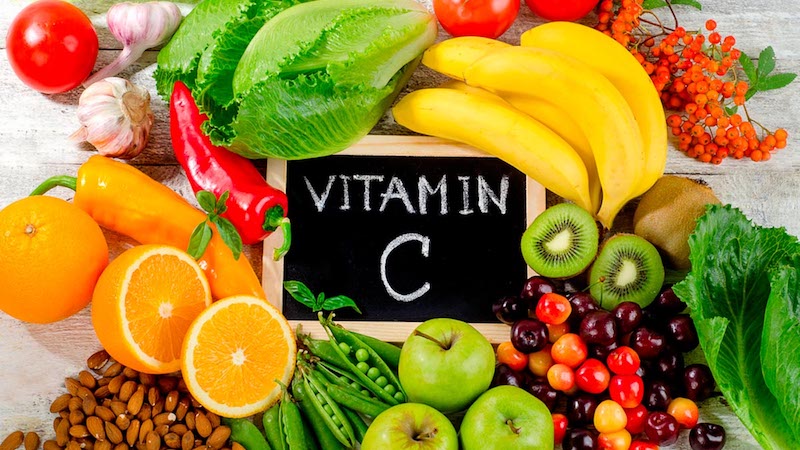
If you’re like many people, you probably don’t think too much about vitamin C. But this vitamin is worth paying attention to, since it plays so many roles in the body…
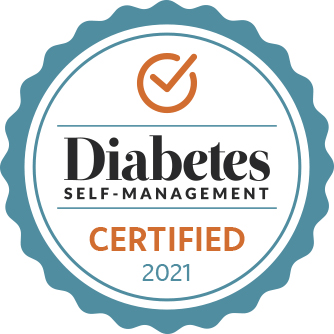
Your kitchen sponge harbors more germs than your toilet. And we don’t have to tell you that germs spell sickness and disease for humans and pets, too. Ditch the sponge and switch to Geloo silicone sponges…

Energy drinks are one of the fastest growing products in the beverage market. Can people with diabetes drink them? Learn more here…
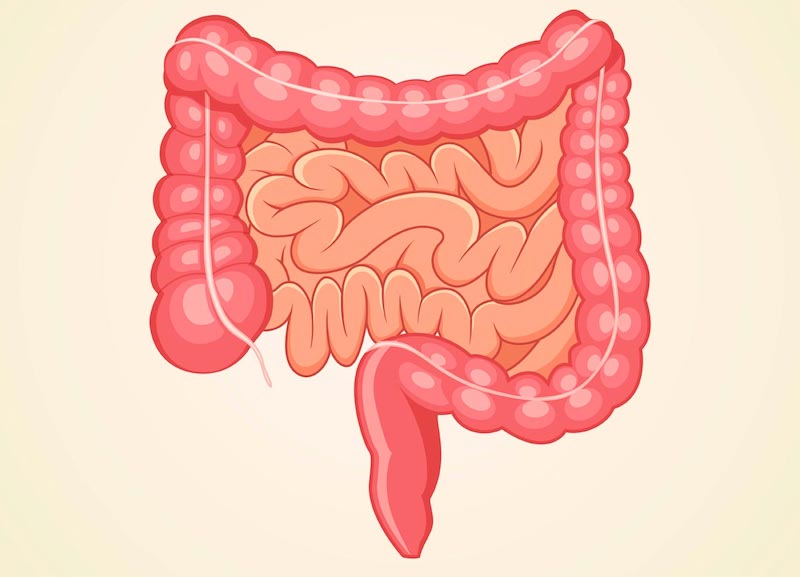
Being constipated is nothing to be ashamed or embarrassed about. Can diabetes cause constipation? Get answers here…

You’ve probably heard of Lyme disease, and maybe you’ve even had it. What exactly is Lyme disease, and what causes it? And does having diabetes put you at risk?
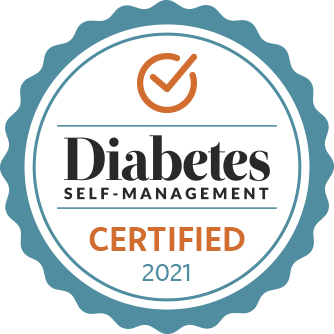
Missing your morning toast or English muffin with a spread of jam? You don’t have to, thanks to Good Good jams and jellies…
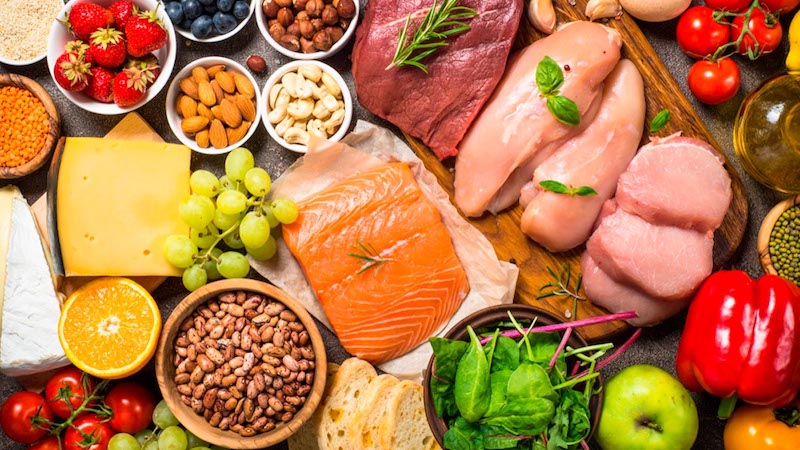
Maybe you were given an “exchange” diet or meal plan when you were diagnosed with diabetes. What are these exchanges? And can they be helpful for you?

Have you ever felt a “pins and needles” sensation in your hands or feet? This tingling, burning or prickling feeling is called paresthesia…

If you’re looking for some new snack ideas or have been searching high and low for lower-carbohydrate products, look no further…
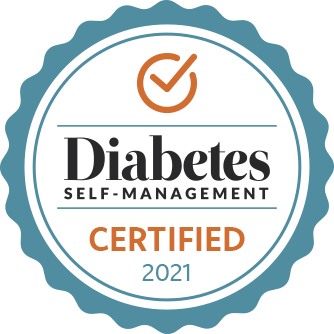
What if you’re not a big fan of water? Don’t give up on it — flavor it, instead, with Stur Love Water Naturally liquid water enhancer…

Diabetes is a chronic condition that occurs when your blood glucose (sugar) is too high. Right now, there is no cure for diabetes, but there are effective ways to manage it and live a healthy life…

Everyone loses some hair every day. That may seem surprising, but the reality is that people shed between 50 and 100 hairs each day…

Grapes are a favorite fruit of many people and are consumed in a number of forms. However, they are often maligned, especially when it comes to diabetes. Can you eat grapes if you have diabetes?
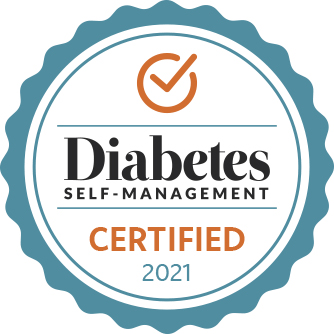
Pop Bitties Ancient Grain Chips are light, crunchy air-popped chips made from 100% whole-grain sorghum, brown rice, quinoa, and chia seeds…
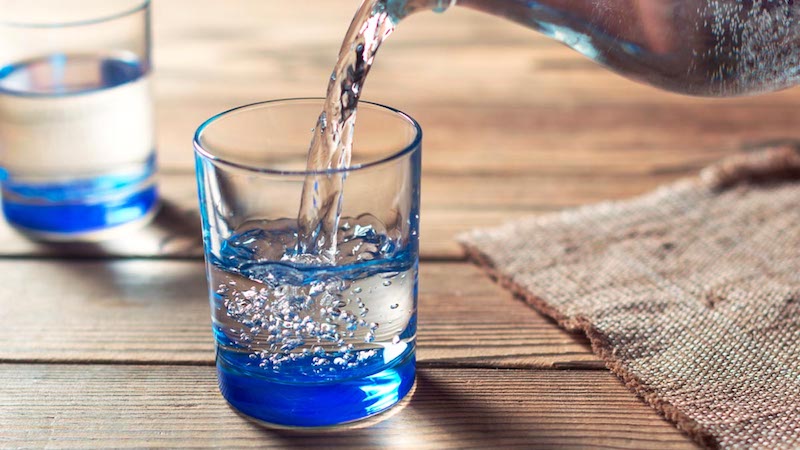
Dehydration happens when you lose more fluids than you are taking in, and your body doesn’t have enough fluids to work properly. Dehydration is associated with certain illnesses and even death…
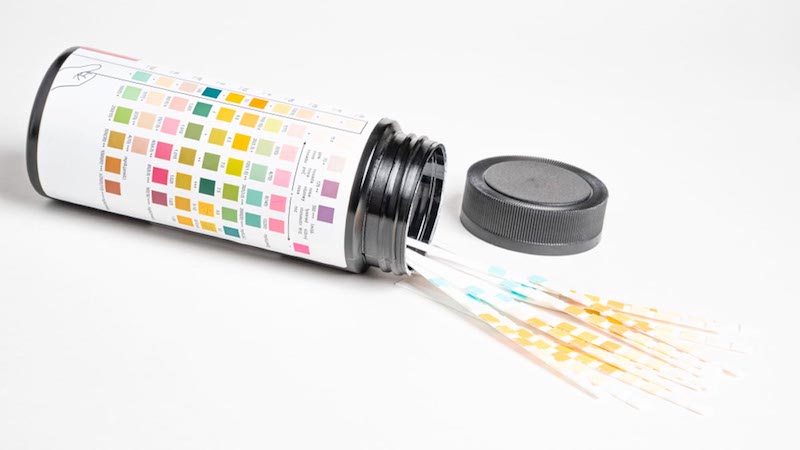
You might be curious about ketones, and for very good reasons. What are ketoacidosis and ketosis, and do you need to worry about them?
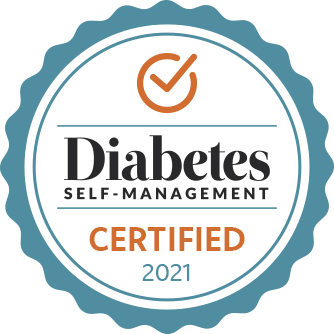
Now you can always have ripe avocado that’s ready for your favorite dishes and snacks, thanks to 365 by Whole Food Markets Avocado Chunks…

unfortunately, people with diabetes are at risk of developing cognitive impairment. Luckily, there are steps that you can take to help your brain stay healthy and hopefully ward off mental decline…

A potential downside of taking metformin is the link between long-term use and vitamin B12 deficiency. Learn why this is and what you can do…

You might also be curious to know the difference between pulse and heart rate, and what your target heart should be if you are exercising. Find out more with this heart rate chart…

Need a break from chia or flax seeds? How about giving hemp seeds a try?

Acid reflux occurs when the contents of your stomach come back up into your esophagus. Find out steps you can take to cool the burn…

A common side effect of having diabetes is feeling fatigued. Learn why this happens and what you can do about it…

Which is the best type of salt to use? Can you use salt if you have high blood pressure? Find out salt facts here…
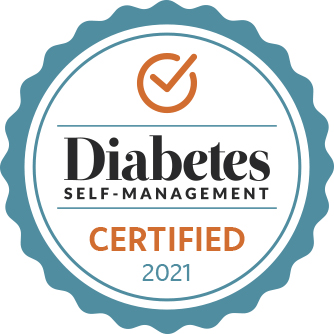
Thanks to the ThermoPro Digital Thermometer, you can easily tell if your foods are cooked to a safe temperature…

You might be very surprised that many fruits have a low glycemic index (GI). Learn about some summertime superfruits…
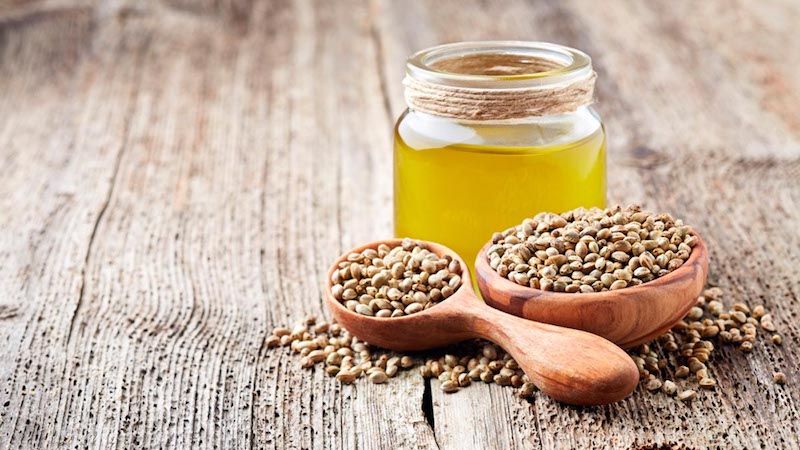
You might be curious about hemp seed or hemp seed oil. More and more food products contain hemp seed or hemp seed oil. But what are they? And are they safe to consume?
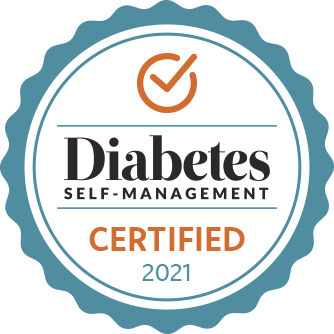
Wish you could stay cool no matter where you go or what you do? You can, with the GaiaTop Personal Neck Fan…
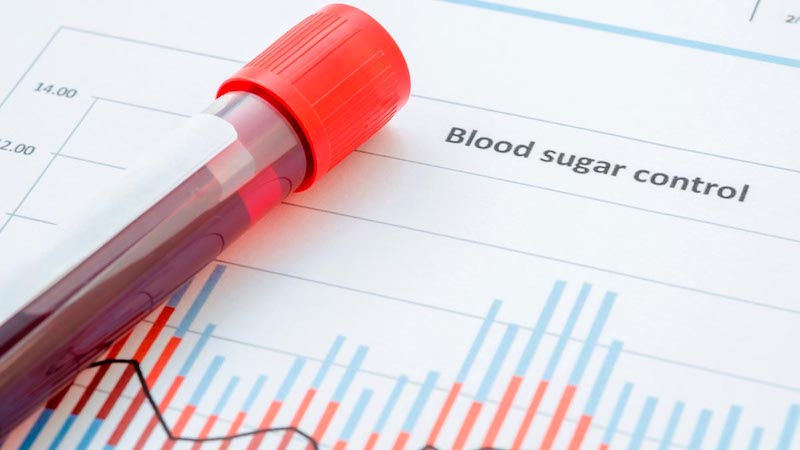
If you have type 2 diabetes, it’s good to know that there are many treatment options to choose from. One choice is the GLP-1 agonists…
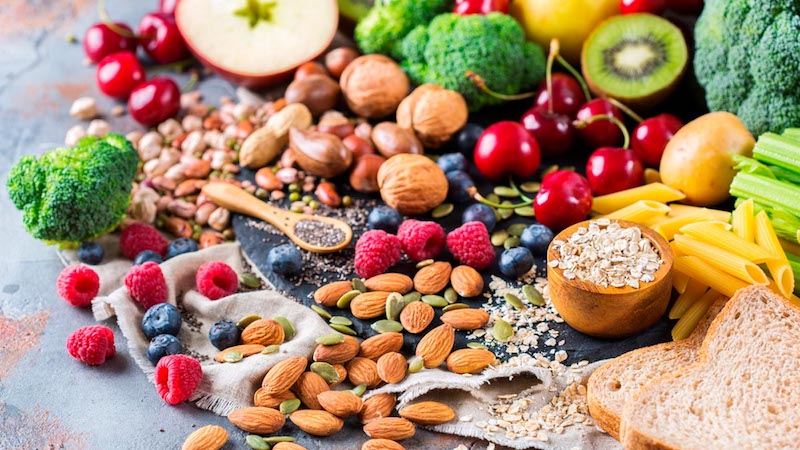
What does fiber really do for us? How much do we need? And, how does fiber impact diabetes?

How can you stick with a weight-loss plan without feeling hungry all the time? Here are suggestions to help keep the “horrible hungries” at bay!
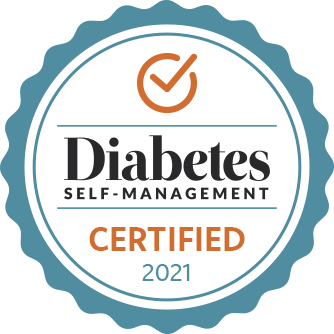
No matter where you are this summer, take along the Sport-Brella Versa-Brella to shield you from the sun’s damaging ultraviolet rays…

Probiotics and prebiotics are both essential when it comes to supporting a healthy gut, or digestive tract…

Is beer okay to drink, especially if you have diabetes? Does it have any effect on blood sugars? Read on to learn more…
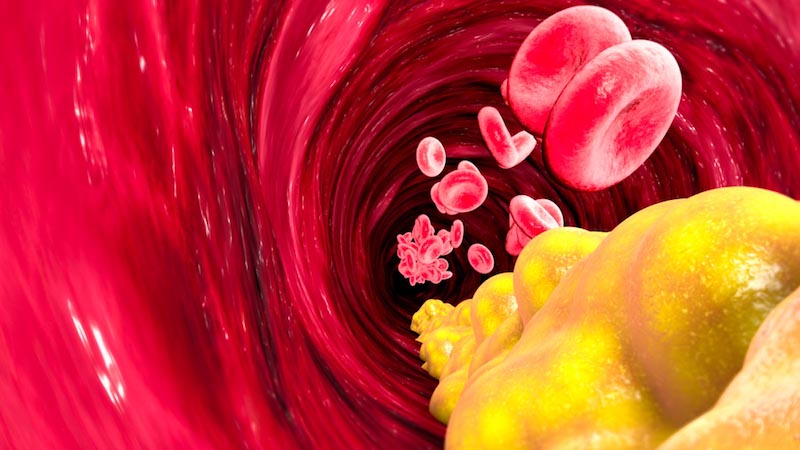
Some people may have side effects from or choose not to take a statin. Let’s looks at some other options in these situations…
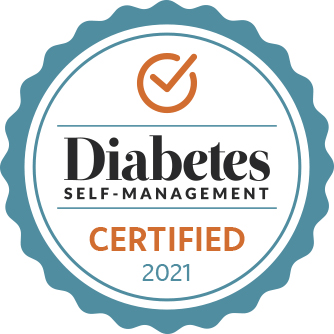
Schoolyard Snacks Cheddar Cheese Keto Puffs will bring back fond memories — without the guilt or the carbs…

Considering a diabetic alert dog? Read on to learn more about these special dogs and to find out if you could benefit from having one…

Some research indicates that people with diabetes may have a higher risk of skin cancer. Learn about risk factors, symptoms, prevention, and more…

If you have diabetes, you know that wearing the proper footwear is particularly important to protect your feet. If you’re in the market for summer sandals, check out Teva Women’s Tirra sandals…
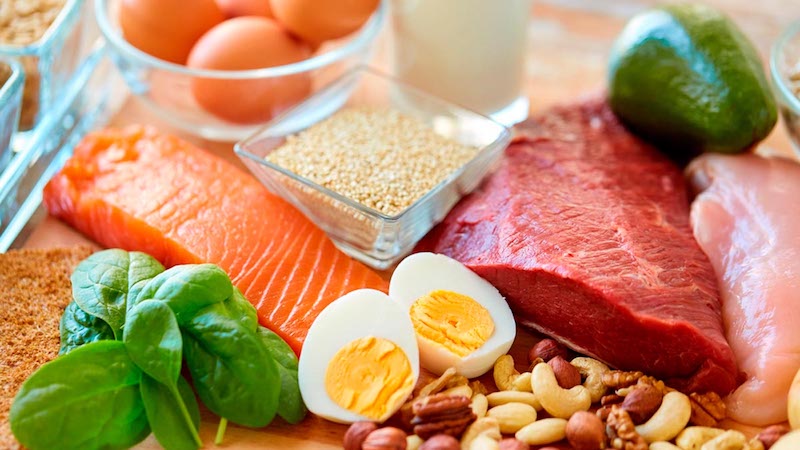
How much is enough protein? And what are some ways to get this nutrient in your diet? Learn about optimizing protein intake and good dietary sources…

Having diabetes doesn’t mean you have to give up everything you love to eat, but it does involve learning how foods impact your blood sugars…
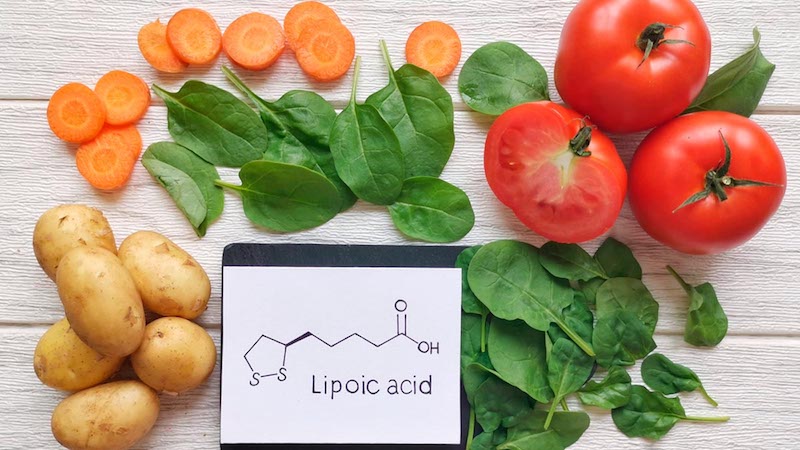
What is alpha lipoic acid, and is it good for people with diabetes? Learn about sources, side effects, possible benefits, and more…

If you avoid milk because of a lactose intolerance or because you’re worried about the carbs, perhaps you need to try Fairlife Yup! 1% Low Fat Ultra-Filtered Milk…

Living with and managing diabetes is challenging for most people who have this condition. Learn how to figure out a game plan that works for you…
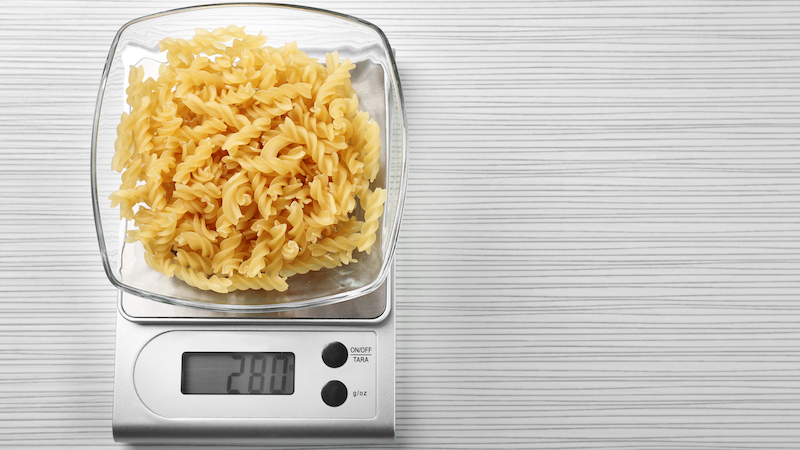
Understanding what carbohydrates are, as well as how to successfully fit them into your eating plan, will make it a lot easier to keep your blood sugars within your target range…

Common questions that frequently pop up for people with diabetes are: Does insulin expire? And can you use your insulin if it’s expired?

Should buying quality sheets mean taking out a second mortgage? No, not if you buy Mellanni microfiber sheets…

Keeping up with your fluid intake is important, especially when you have diabetes. Read on to learn why!

People with diabetes are at risk of developing a number of different foot problems. Medical issues, poorly fitting shoes, and injury are all potential causes of foot pain. Let’s take a closer look at some of the causes and what you can do…

Dairy foods have a number of health benefits that are important for people who have diabetes. Let’s take a look!

In the mood for a healthy, crunchy snack with a little zest? Grab a bag of PeaTos Fiery Hot Crunchy Curls! No, these aren’t junk food…

There are ways that you can ensure that your body has enough nitric oxide (NO), including eating certain foods and staying active…

While gestational diabetes is serious, remember that, with proper management, you can have a healthy baby…

Nitric oxide plays some pretty impressive roles in the body. Find out how it relates to diabetes, heart health, cancer, and more…

Are you finding your water bottle nearly impossible to clean? Don’t rush out to buy a new one just yet — clean it the right way with Bottle Bright Bottle Cleaning Tablets…

High blood pressure, also called hypertension, is common in people with type 1 or type 2 diabetes…

Learning what your risk factors are for gestational diabetes can help you prevent it and manage it, if it should occur.,,

The best way to prevent blood clots is to understand what causes them and then take steps to stop them from happening…

Is guacamole one of your favorites? We think it’s pretty great, too. And so does McCormick Produce Partners Spicy Great Guacamole Mix…

Why do you suddenly stop losing weight when you’re doing everything “right”? Learn about reasons for a weight-loss plateau and what you can do about it…

People who have diabetes can get headaches for a variety of reasons, but fortunately, there are ways to treat and manage them…

According to the National Eye Institute, “Macular edema is the build-up of fluid in the macula, an area in the center of the retina.” Learn about symptoms, treatment, and prevention…

In a world full of sugar-laden drinks that can spike your blood sugar, finding something carb- and sugar-free to sip on that actually tastes good can be tricky…

Gastroparesis is a condition in which the stomach takes too long to empty food into the small intestine. If you have this condition, there are certain foods that can provide you with nutrition while minimizing symptoms…

What’s in a smoothie? And if you have diabetes, how will a smoothie affect your blood sugars? Find out if smoothies are good for diabetes…
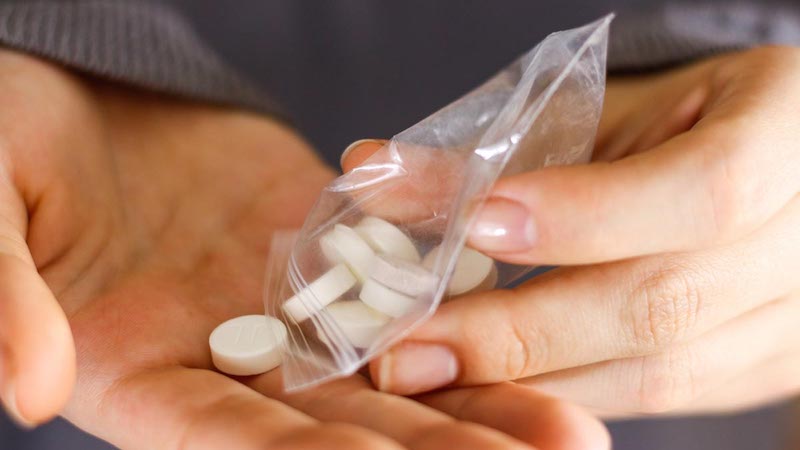
If you take insulin or certain types of diabetes pills, there’s a good chance that somewhere along the line, you’ve had hypoglycemia, or low blood sugar. Read on to learn about the best ways to safely treat hypoglycemia…
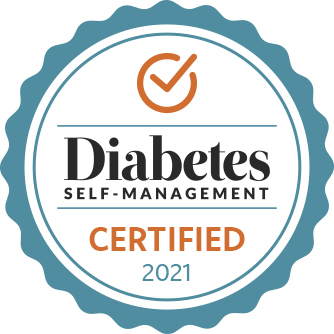
Getting a bug bite can quickly put a damper on an enjoyable time. If you do get bitten, there’s now a way to fight back quickly: Bug Bite Thing!

A lot of misinformation surrounds diabetes, especially when it comes to sugar. Let’s clear up some of that confusion and set the record straight…
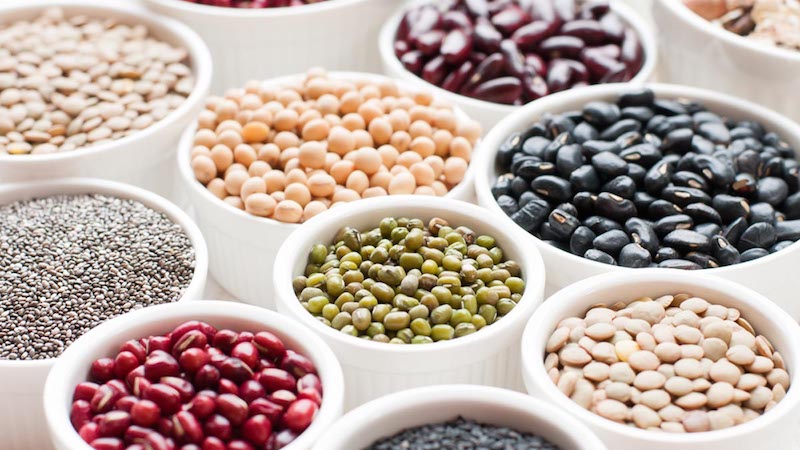
Beans are a food that generally don’t get much respect compared to other foods. But they’ve quietly risen to superfood status, thanks to their nutrition … Read More “Are Beans Good for Diabetics?”

If you give yourself insulin injections, you might eventually see or feel hard, lumpy areas under the skin. This condition is called lipohypertrophy…
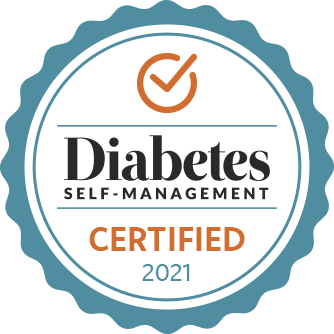
It can be hard to find a tasty cereal that is low in sugar and that provides some decent nutrition. Check out Love Grown Power O’s Original!

Learn what a neurologist does for diabetes and why it might be helpful to have one of these specialists on your team…

Proteinuria is a term that means that there is an increased amount of protein in the urine. What does it mean if you haeve protein in your urine?

El potasio es el mineral preferido para la publicación de esta semana por varias razones: es un mineral al que las personas con problemas renales deben asegurarse de prestar mucha atención…

With so many protein powders to choose from, how do you know which one is best for you? A trusted source is Bob’s Red Mill…
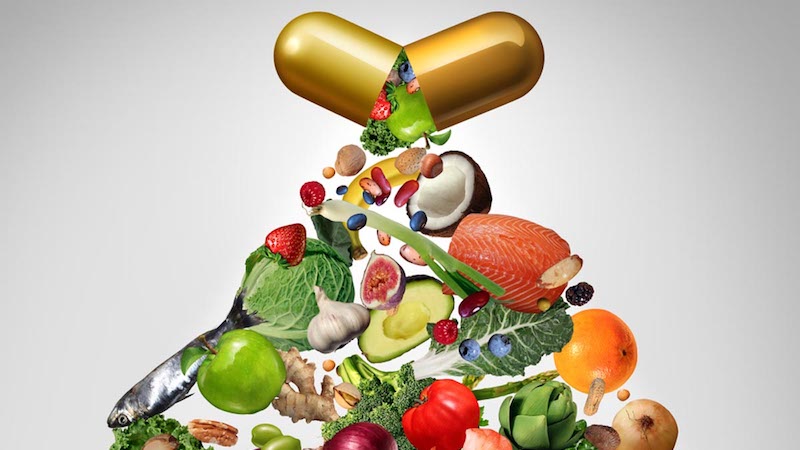
Here are several nutrients that you might not be getting enough of. These nutrients may play a role in managing diabetes, warding off certain diseases or complications of diabetes, or promoting overall health…

Dove has introduced their first ever refillable deodorant that keeps our planet healthy while keeping you feeling and smelling fresh…
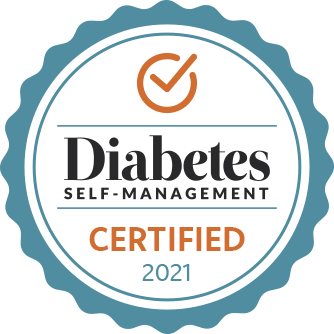
Before you start concocting homemade salad dressings, make sure you have the Whiskware Salad Dressing Shaker…

Whether you’re brand new to having diabetes or you’ve had it for many years, one of the areas of diabetes self-management that can be the most challenging is healthy eating…

If your nose is dry, irritated or congested, it’s time to give it some much-needed TLC with Arm & Hammer’s Simply Saline Nasal Mist…

Diabetes can affect many parts of the body, including the heart, kidneys and nerves. What you may not know is that diabetes can also affect your lungs and can impact how well you breathe…

If your skin has been feeling parched, you need a moisturizer. That’s where CeraVe Diabetic’s Dry Skin Relief Moisturizing Cream comes in…

La insulina es una hormona. Se produce en las células beta del páncreas y una de sus funciones principales es ayudar a regular o controlar el azúcar en sangre.

If you avoid yogurt because you can’t eat dairy products, you might feel like you’re missing out. Never fear, Siggi’s is here!

If you have diabetes, you are at risk for high blood pressure (hypertension), as well. Get tips for treating high blood pressure…
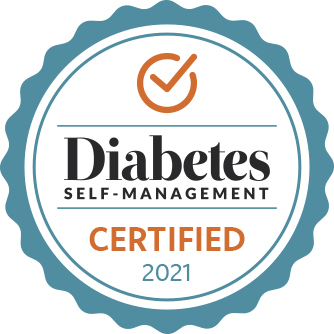
Staying hydrated is important for good health. Water just got a whole lot better tasting thanks to the Prodyne Fruit Infusion Flavor Pitcher…

A podiatrist, for many people, is a key part of the healthcare team. Learn more about what a podiatrist does and why you might need one on your team…
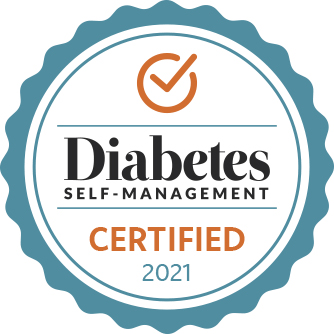
Salads starting to lose their sparkle? Maybe it’s time to switch up your salad dressing. But if the usual supermarket selections leave you less than excited, give O’Dang Honey Mustard Hummus Dressing a try…

One of the most common complications of having diabetes is kidney disease. Learn about symptoms and how to keep your kidneys healthy…
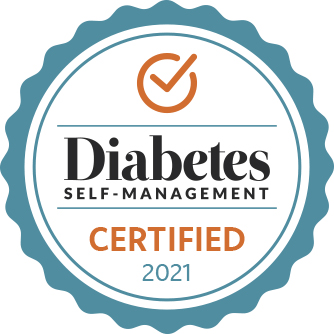
If life has gotten you down, a great way to help think more positively, beat stress and enjoy a sense of well-being is to keep a journal…
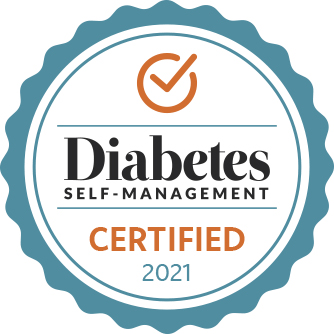
If you thought jerky was just some packaged salty snack sold at gas stations and convenience stores, you haven’t given Think Jerky a try!

Here are some common habits that don’t do your heart and blood vessels any good — and what you can do about them!

Para aquellos que tienen diabetes y descubren que dolor de cabeza palpitante es más que una simple molestia pasajera, es hora de determinar las posibles causas. Echemos un vistazo a cinco formas en que la diabetes causa dolores de cabeza…

Right now, there are a lot of reasons to feel stressed. An easy way to improve your sleep and banish stress is to use a weighted blanket…

Es posible que te estés preguntando sobre el uso de sustitutos del azúcar al cocinar u hornear. ¿Puedes usarlos y de ser así, qué funciona mejor?

Si tienes diabetes, es posible que te sientas confundido en lo que respecta a la fruta. ¿Qué pasa con los plátanos (bananas)? ¿Deberías evitarlos si tiene diabetes?
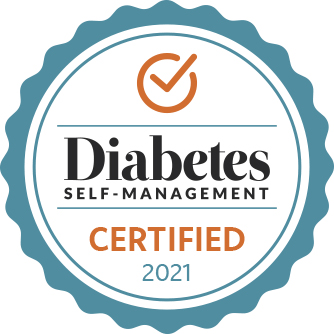
The WW Scale by Conair is so much more than your run-of-the-mill bathroom scale…

People with diabetes are more likely to have heart disease than those without diabetes. Get heart smart and learn about cardiovascular goals…

Peeling and chopping garlic can be somewhat of a chore. And what do you do if you don’t have a fresh clove of garlic? That’s where Dorot Crushed Garlic Cubes come in!

If you find yourself frequently turning to food for comfort when times are tough, read on to find ideas to try to help you end emotional eating…

Wintertime means soup time! Speed things up with Cascadian Farm Organic Diced Onions, Celery & Carrots Mirepoix…

If you have diabetes, taking medication may be part of your daily routine. Let’s take a look at some of the common “mishaps” that can occur…
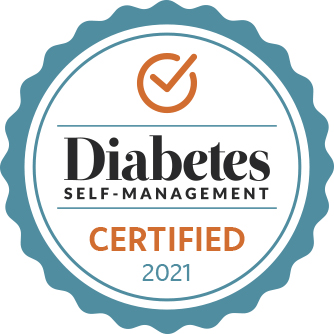
Common foot ailments can cause pain and discomfort, and can impact your quality of life. Copper Compression Copper Arch Supports can help!
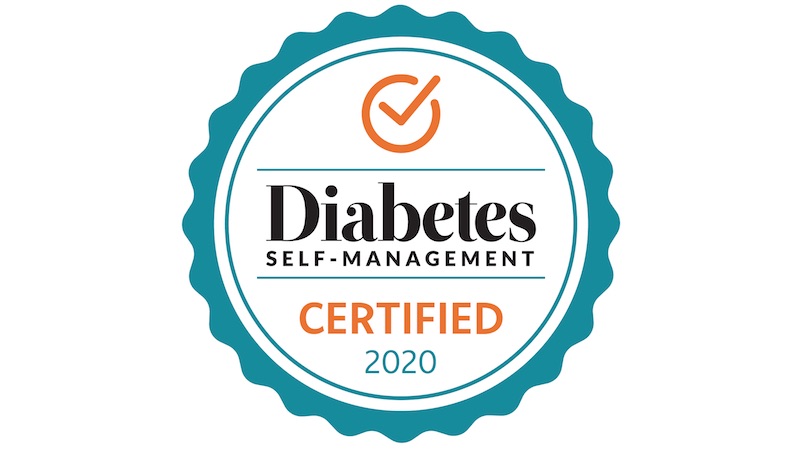
You might have a humidifier in your bedroom for sleeping, but what about during the day when you’re working or driving in your car? Answer: The FIGROL portable mini cool mist humidifier…

Whether you’ve chosen to go the low carb route or to incorporate carb foods in your eating plan, making sense of carbs can sometimes be tricky. Let’s see if we can cut through some of this carb confusion…

Wake up feeling energized and fall asleep faster with the Philips SmartSleep Sleep and Wake Up Light. Clinically proven to improve your sleep routine…

What are adaptogens and are they something you should try?

Learn how diabetes can affect your heart, including signs and symptoms of possible heart problems, as well as what you can do to keep your heart healthy…

If you’re looking for the perfect gift for your favorite cook (maybe yourself?), consider a spurtle. A spurtle is a wooden tool that originated in Scotland…

One of the diabetes self-care behaviors that has likely taken a “hit” this year is physical activity. Get tips for exercising safely during the COVID-19 pandemic…

What better gift to yourself than taking good care of your hands (especially if you have neuropathy) with Grill Armor Extreme Heat Resistant Oven Gloves…

There are some lesser-known effects of COVID-19, including symptoms, costs and emotional impacts. What are they? And what can you do about them? Read on…

Now that you’re staying home and cooking more, isn’t it time that you treated yourself to a nice — make that great — chef’s knife? The Zwilling Pro 6-inch Chef’s Knife is a small but worthwhile investment…

It’s important to give your immune system the support it needs to keep you and healthy over the winter. Read on to learn how…

Feeling left out while others enjoy yogurt because you’re lactose intolerant or vegan? Don’t feel left out: try Oatly Oatgurt Plain!

Everyone faces holiday hurdles. Use these self-management behaviors to help you and hopefully have an enjoyable holiday season, this year and every year…

If you suffer from headaches and are looking for alternatives to medication, consider Aculief Wearable Acupressure for relief…

The holiday season is fast approaching, which means baking all sorts of goodies and treats. But those goodies and treats may seem out of reach if you have diabetes…

An important part of managing your diabetes is knowing — and understanding — how it’s doing…
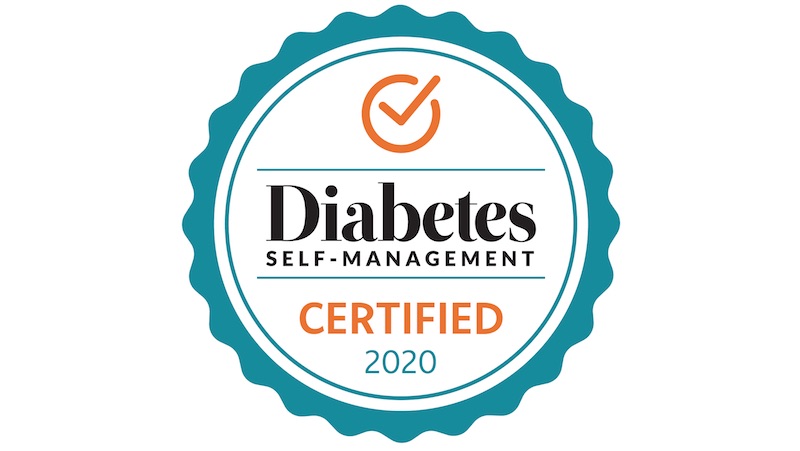
If your skin, hands, lips or hair are looking or feeling parched, it’s time for some moisturizing relief. Dr. PAWPAW Multipurpose Soothing Balm is not just any balm…

Since we’re still in the midst of the coronavirus pandemic, it’s as good a time as any to focus on steps that you can take to make sure your lungs are as healthy as they can be…

There are so many reasons to enjoy a hot cup of tea. Whatever your reasons are, you’ll be sure to appreciate Tea Forte’s Single Steeps Tea Chest Sampler…

Many people with diabetes also have an endocrinologist as part of their team. But what exactly is an endocrinologist? And what does an endocrinologist treat?

If your feet are aching or sore from neuropathy, arthritis, plantar fasciitis, sprains or just from being on your feet all day, give Foot Health Cold/Hot Therapy Socks a try…

If you’ve had UTIs before and think you may have one now, AZO Urinary Tract Infection Test Strips can save time and help you get the right treatment faster…

El color, el olor y la consistencia de su orina pueden brindarle a usted y a su médico información útil sobre lo que podría estar sucediendo en su cuerpo…

If you’re looking for an easy, inexpensive way to ease aches, pains, stiffness and overall stress, give the ProsourceFit Acupressure Mat and Pillow set a try!

La metformina se considera un medicamento de “primera línea” para las personas que tienen diabetes tipo 2. Hay muchas cosas sobre este medicamento que es útil e importante saber…

Before you head to the supermarket to stock up on almond milk, it’s important to evaluate the various types, as not all are healthy choices…

Colder nights lie ahead, and what better way to warm up with a nice cup of tea? The Republic of Tea People’s Green Tea has a delicate, refreshing flavor…

Uno de los efectos secundarios más comunes de la insulina es la hipoglucemia o niveles bajos de azúcar en sangre…

There is concern in the medical community that people diagnosed with COVID-19 are at higher risk of developing either DKA or diabetic hyperosmolar syndrome…

Noise is a big factor in being able to sleep. If you toss and turn at the slightest shift in sound, give the HoMedics SoundSpa white noise machine a try…

For many people, peanut butter is a staple. But is peanut butter all that it’s hyped up to be? And how does it affect your diabetes, if at all?

The Instant Pot Diabetes Cookbook: Simple Recipes for Healthy Home Cooking is full of recipes that are easy to prepare, thanks to step-by-step directions, and come with the nutrition breakdown so that you know exactly what you’re getting…

There’s a link between diabetes and atrial fibrillation. Learn more about this common type of heart arrhythmia, including symptoms, causes and treatments…

If you’re dealing with back pain from sitting for long periods at work or school, it’s time to give the Egg Sitter Support Cushion a try…

If you have type 1 or type 2 diabetes, you may be at risk of developing a variety of hand disorders, often grouped under the term “diabetic hand syndrome…”

What if you eat vegan or are trying to just eat more plant-based, overall? No worries! There’s a sausage for you…

While you might be eager and excited to get back to work after being cooped up at home for a long time, you might also be anxious and concerned, especially if you have diabetes…

Sharp knives make all the difference when it comes to cooking and meal preparation. Inexpensively sharpen your knives with the KitchenIQ 2-Stage Knife Sharpener…

Dizziness is one of the most common reasons that people visit their providers, and according to Timothy Hain, MD, it affects about 15% of the population…

If you spend your nights tossing and turning and pulling up, then throwing off your blanket, the Elegear Revolutionary Cooling Blanket is for you!

There’s room in your eating plan to eat ice cream and other frozen treats if you so choose. But how? And what are the best ice cream choices if you have diabetes?

Hot, sticky summertime weather is enough to deal with without having to manage uncomfortable rubbing and chafing between your thighs, under your arms or on your feet…

With summer in full swing it’s as a good a time as any to take a “deeper dive” into the realms of water…

With so many of us spending our days (and nights) hunched over a computer, tablet or smartphone, it’s no wonder we’re plagued with stiff necks and sore, achy shoulders…

Coronavirus hasn’t gone away — and probably won’t — but strides have been made in learning more about the virus, as well as newer treatments. ..

If you’re looking for a meal replacement or an option for healthy snacks, look no further than Splenda Diabetes Care Shakes…

Is there anything better than a thick slice of cold watermelon on a hot summer’s day? In terms of refreshment, watermelon just can’t be beat…

It’s not so easy to cook veggies or other small items, such as shrimp and shellfish, on the grill. BBQ Dragon has a solution for that: the Rolling Grill Basket…

Yogurt is one popular food – just head to the dairy case in your local grocery store and you may be amazed at the multitude of brands and varieties that line the shelves. But is it a food that people with diabetes can or even should eat?

One of the highlights of summer is a cold, refreshing glass of lemonade, but finding a good-tasting sugar-free lemonade isn’t an easy task. Luckily, your search is over…

You want that summertime glow – but without the harmful effects of the sun’s damaging rays. And you want to get that glow with a product that is easy and efficient…

Warmer weather means you may be enjoying the great outdoors more, exercising, playing golf or tennis, or doing yard work. Unfortunately, all of that activity increases the chances of injury or a strained muscle…

If you’re tired of throwing out produce because it’s gone bad, well, you should be! Forget about foil and plastic wrap to store your produce. Instead, switch to Happy Sales food keepers…

You may have heard about CGM at one point or another; maybe you’ve had an opportunity to give it a trial run, or maybe you’ve been able to wear CGM temporarily. Learn about continuous glucose monitoring updates for 2020 and beyond…

If you’ve given up on wearing your sneakers because you struggle to tie them, you’re in luck! You can easily turn your tie shoes into slip-on shoes, thanks to Homar No Tie Shoelaces…

This year, summer will likely be very different for most of us, thanks to the COVID-19 pandemic. But what probably won’t change are the long, lazy, hot days — and the accompanying nuisances that can make this time of year uncomfortable and sometimes even dangerous for people who have diabetes…

It’s hot outside and you’re craving something cool and sweet that won’t break your carb budget and send your blood sugars soaring. Fortunately, you have choices!

Claims abound on how apple cider vinegar can help to lower blood sugars, as well as promote weight loss. But are these claims all hype?

If your experience with tahini is limited to hummus, then you’re missing out on just how good this sesame seed paste is for so many other purposes…

Staying at home due to COVID-19 has been a challenge for all of us, and weight gain is an unforeseen consequence that many people are now dealing with…

Wearing sunscreen is a must any time of year, but now that the warmer weather is here, it’s more important than ever to slather on the sunscreen…

Some purported coronavirus “remedies” can be downright harmful, if not fatal. Let’s de-bunk some of the current coronavirus myths out there…
Around the holidays, a question that often comes up for those with diabetes is, “Can I drink alcohol?” It’s a perfectly reasonable question — after … Read More “Diabetes, Alcohol and the Holidays: Tips to Stay Safe”
If you’re one of the people who has a love-hate relationship with the holidays, you’re not alone. The season brings family and friends together, and … Read More “Type 1 Diabetes: Master Holiday Health Pitfalls”
It’s never fun to think about kidney disease (or any type of diabetes complication, for that matter), but taking steps now can go a long … Read More “Kidney Disease: Your Seven-Step Plan for Prevention”

Air purifiers have been shown to help you breathe easier. Blueair’s Blue Pure 411 Air Purifier is ideal for small to medium-sized rooms…
First, the good news. People, in general, are living longer. And people who have diabetes can and do live long, healthy lives. Now, the not-so-good … Read More “Nine Tips to Keep Your Memory With Type 1 Diabetes”
Skin health is important not just so that you can look good, but also because it can prevent problems from forming, such as infections. You … Read More “Diabetes and Skin Care: Tips to Keep Your Skin Healthy”
Dryness, itchiness, flakiness and redness are all common conditions that can affect your skin, and it’s especially important to pay attention to your skin when … Read More “Diabetes and Skin Care: Common Conditions”
What’s the deal with breakfast, anyway? After all, it’s just a meal. But of all of the “three squares,” breakfast seems to be the meal … Read More “What Should You Eat for Breakfast If You Have Type 1 Diabetes?”
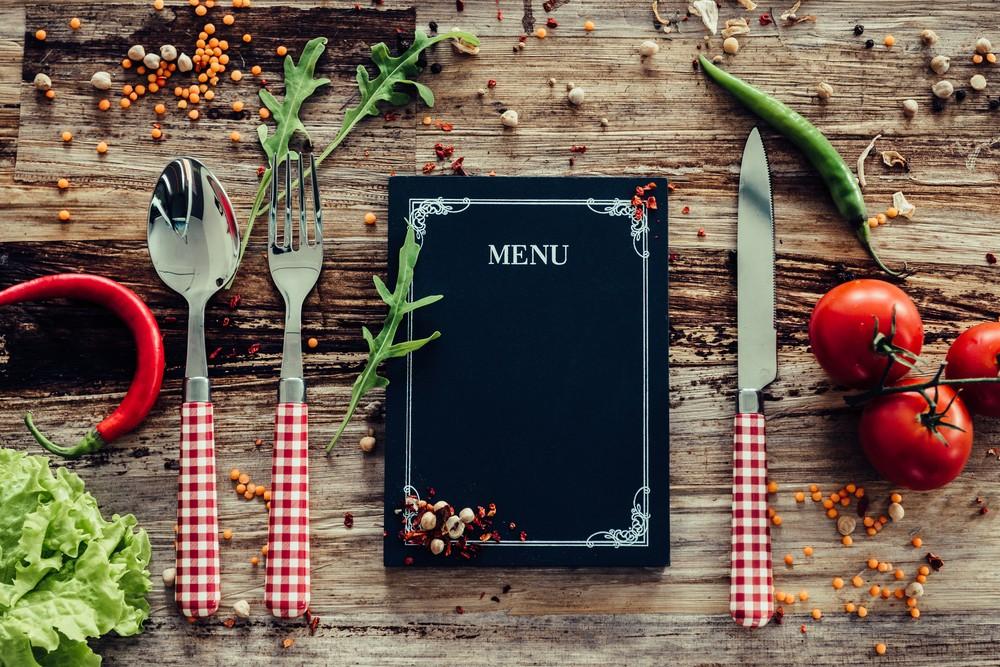
Americans like — make that “love” — to go out to eat, so much so that, on average, we eat out 4.9 times per week, … Read More “Eating Out With Diabetes: Making the Best Menu Choices”

Potatoes are so popular that, according to the Maine Potato Board, they’re the “second most consumed food in the United States…”
Insulin is s a life-saving drug — people who have type 1 diabetes depend on it to survive. Read on to find out more about … Read More “Insulin: What You Need to Know”
The word “insulin” can instill fear in many people who have or who are at risk for diabetes. Some of the beliefs around insulin are … Read More “What Does Insulin Do?”
When it comes to giving yourself insulin, it’s important to know that you have options. The process of giving yourself insulin is called insulin delivery. … Read More “Ways to Inject Insulin: Syringes and Pens”

Wishing you could eat yogurt, but dairy isn’t for you? Now you have a tasty, dairy-free option to try: Kite Hill Blissful Creamy Coconut Milk Yogurt…

There has been recent news of a coronavirus meat shortage. Under these circumstances, how can you ensure that you get enough protein in your meals?

If you have difficulty falling or staying asleep, you’ve no doubt tried a sleep mask or two. Say goodbye to sleep masks that just don’t work, and say hello to the Manta sleep mask!

Everyone is touting a way to “boost” immunity. But what does this mean? And is it even possible or desirable to do this, especially if you have diabetes? Let’s separate fact from fiction…

Constant hand washing can wreak havoc on your hands. Give them some tender loving care with Gloves in a Bottle Shielding Lotion…

Are you recently diagnosed and wondering if eggs are good for diabetes? Find out if they are all they’re cracked up to be…

If you enjoy cooking and baking, you probably know that many recipes call for eggs. But what do you do if you’re allergic to eggs? Or are having a hard time getting eggs at your grocery store?

During times of crisis and stress, your day-to-day schedule and routine can get disrupted, and that’s to be expected. If you’ve been thrown off a bit (and who hasn’t?), here are some suggestions for helping you get back on track…

The high-quality Atahana Premium Jade Roller and Gua Sha (massage tool) are 100% real jade and are hand-cut from Xiuyan jade…

What triggers the immune system to go haywire, leading to type 1 diabetes? Learn what your immune system does, how it works, and how things can go wrong.

If dragging out your bulky blender and a complex cleaning process are chores you could do without, you’ll love the Oberly Portable Blender!

It’s scary to be venturing out right now. Is it possible to do so while staying safe? Get expert tips for safe grocery shopping during the coronavirus pandemic…

Now more than ever, planning meals has become a priority for all of us. To help you plan your meals and organize your shopping list, turn to the Weekly Meal Planner…

In your search for a sweetener that won’t raise your blood sugars, you come across that bottle of honey tucked away in your cupboard. And you wonder if this golden nectar is an option…

Learn what steps parents can take to keep their children safe during the coronavirus pandemic…

If you don’t want to deal with the hassle of a coating that comes off over time, you’ll love the Zwilling Madura Plus Forged 10-inch nonstick fry pan…

These days, everyone is feeling on edge. The coronavirus pandemic has affected all of us, and some of us more than others…

Is carrying a water bottle not practical when you’ve got so many other things to lug around? Problem solved with the Okitry Collapsible Water Bottle!

Here are some tips that can help you ensure that you and your family eat healthy and tasty meals and snacks while dealing with the coronavirus pandemic…

The Linenspa Convoluted Gel Swirl Egg Crate Memory Foam Mattress Topper is a lightweight, breathable egg-crate memory form that relieves aches and pains…

Fruit is pretty much all carbohydrate, and carbohydrate raises blood sugar levels. So, the logical reasoning is that fruit raises blood sugar, therefore, fruit is “bad.” But is that really true? And what about bananas — should you avoid those if you have diabetes?

If you have a chronic condition, such as diabetes, you might be wondering if coronavirus poses an additional threat, and what you can do to protect yourself…

Not everyone with diabetes has to wear special socks, but if you have any foot issues, it’s important. Here’s where the Diabetic Sock Club comes in…

People who have type 1 diabetes are more likely to have another autoimmune disorder, as well, such as celiac disease, Graves’ disease, rheumatoid arthritis or Addison’s disease…

Do you really need another appliance taking up room in your kitchen? Probably, if it’s the Instant Pot DUO60 Pressure Cooker…

Oatmeal is a popular breakfast choice for many people who want something healthy and relatively fast to prepare to start off the day…

TRUEplus Soft Tabs Glucose Tablets are softer and chewier than traditional glucose tablets. And they come in less traditional flavors, too…

Looking to improve your cardiovascular health? In the spirit of February and Heart Month, here are some red foods to help keep your heart healthy!

Headaches can be the worst. You need relief, and fast. If this sounds like you, give Migrastil Migraine Stick Roll On a try…

February is American Heart Month, and it’s a good time focus on steps that you can take to prevent heart disease…

Pain from diabetic neuropathy can range from mild to debilitating. DiabetAid Pain & Tingling Relief Lotion contains 0.025% capsaicin to provide relief…

If you have type 1 diabetes, you might be curious if vegetarian or vegan eating is a) OK and b) beneficial to managing your diabetes…

The thought of slipping icy sidewalks can quickly derail any thoughts of going out for your daily walk. But never fear, STABILicers are here!

With everyone weighing in on what’s good and bad for you, it can be hard to separate food fact from fiction. Let’s clear up five common food myths!

You love your morning coffee, but maybe you’re not so sure what to use for a creamer. If you dislike the taste of non-dairy creamers and can’t tolerate milk, cream or half and half, what else is there? Well, there’s Califia Farms Unsweetened Almondmilk Creamer…

What can and can’t you eat if you have diabetes? That’s one of the top questions that dietitians are constantly asked, and rightly so…

Earth Balance Organic Whipped Buttery Spread is a vegan, non-GMO, organic spread with a light, airy texture and a smooth, buttery flavor…

Good nutrition can play a key role during the time before and after menopause, helping to possibly alleviate some of the more unpleasant symptoms…

Relaxation therapies such as halotherapy and float therapy have recently become more mainstream. Should you try them? And are they safe?

Winter is coming, and as the seasons change, so can managing your diabetes. Get our expert diabetes winter tips to maintain your health in the cold weather…
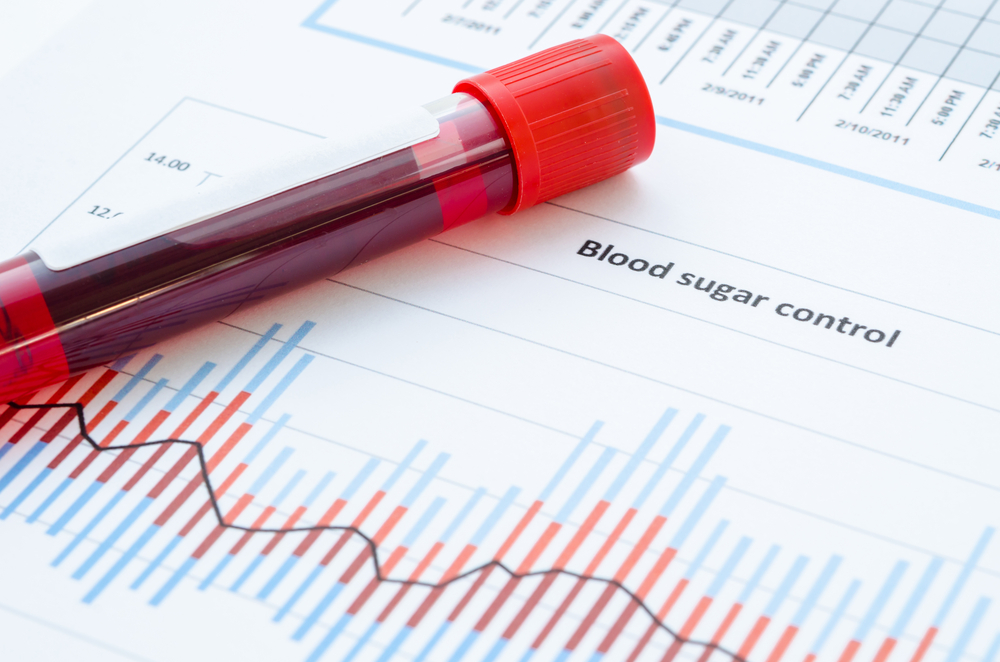
Este tabla de los niveles de azúcar en la sangre muestra los niveles normales de glucosa en la sangre antes y después de las comidas…

Looking back over the past decade, it’s pretty amazing how far diabetes innovation has come. Let’s take a look at some of the top diabetes discoveries and developments over the past 10 years.

La respuesta a la pregunta de cuál es un nivel normal de azúcar en la sangre es la siguiente…

Curious about whether diabetes, alcohol and the holidays mix? Stay safe and have a happy and healthy holiday season with these expert recommendations…

It’s hard enough to manage diabetes on a daily basis without having to worry about possible complications. However, one of the most serious acute complications … Read More “DKA: What to Know and How to Deal”

With type 1 diabetes, much of the focus centers around insulin. But there’s another hormone to know about, and that’s glucagon…

One of the most common side effects of taking insulin is hypoglycemia, or low blood sugar. Hypoglycemia can be mild, moderate or severe…

Living with type 1 diabetes and wondering about inhaled insulin or insulin pumps? Let’s take a look at both of these delivery methods…

When it comes to giving yourself insulin, it’s important to know that you have options. Here, we’ll take a closer look at insulin syringes and insulin pens…

How do you choose the best insulin for you from among the different varieties available? Learn about insulin types from a Certified Diabetes Educator Amy Campbell…

Being told that you have type 1 diabetes can be a blow and being told that you must inject insulin to stay alive can be equally as difficult. But there are ways you can address your fears. Try these expert tips…

Have you recently been diagnosed with type 1 diabetes? Living with type 1 diabetes is definitely doable. These four tips can help.
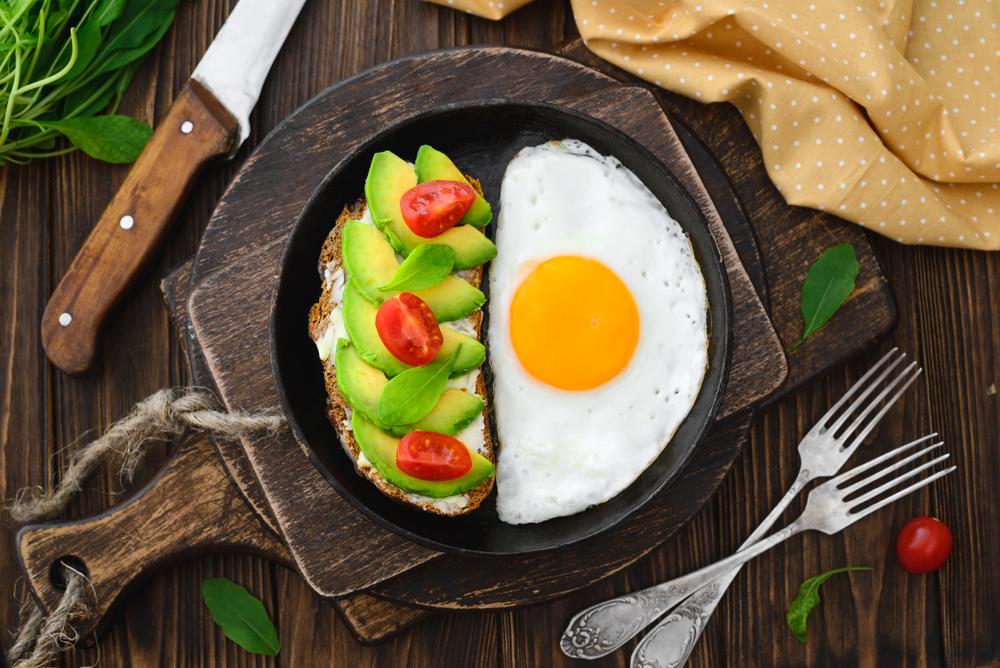
Wondering what you should eat for breakfast if you have diabetes. Get some tasty options from Certified Diabetes Educator and Registered Dietitian Amy Campbell…

Get expert answers to top type 1 questions from Certified Diabetes Educator and Registered Dietitian Amy Campbell…

Ramadan is a month-long period in the Islamic faith during which Muslims abstain from eating and drinking between dawn and dusk in order to enhance spiritual awareness and self-discipline…

Urine is a waste product that contains breakdown products. So, what is your urine telling you about your health? Find out some possibilities here…
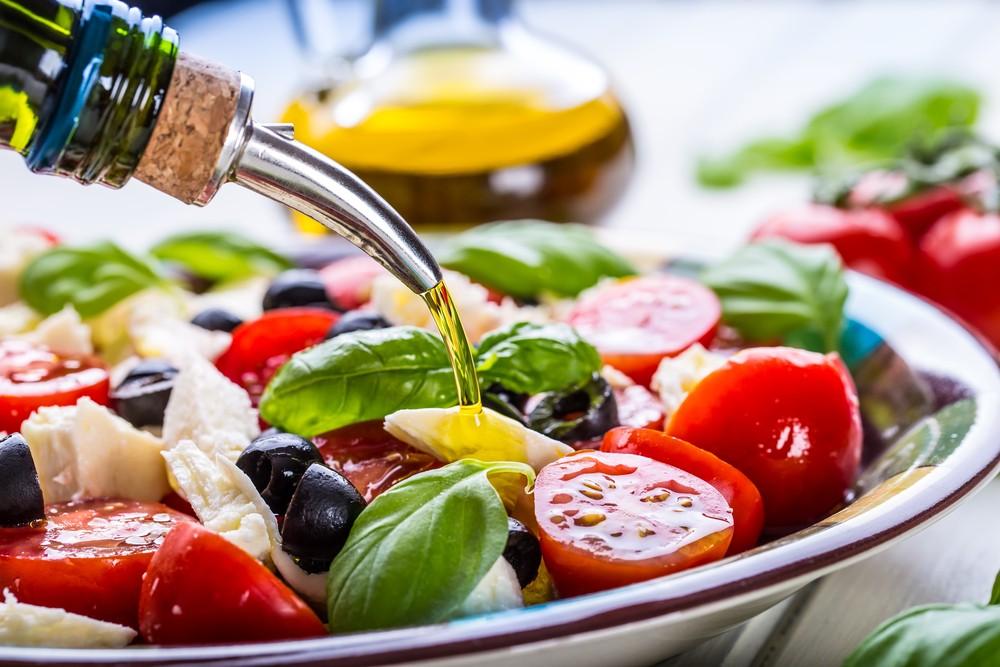
Is the Mediterranean diet really something you should consider following? And is it OK if you have diabetes? The answer to both of these questions is “yes…”

There are a number of ways to get your A1C down. Here’s a rundown of steps that can work for lowering A1C levels naturally…
This week, from February 23 to March 1, is National Eating Disorders Awareness Week. You might be ready to tune out and skip reading this — after all, only women get eating disorders, right?
Last week, we looked at blueberries and plums, fruits from the blue/blue-red end of the spectrum that have much to offer in terms of health benefits. I actually ended up buying a small container of plums this weekend at Costco — haven’t eaten one yet, but I’m hoping they’re sweet and juicy! This week, we’ll look at two more fruits: cherries and kiwi.